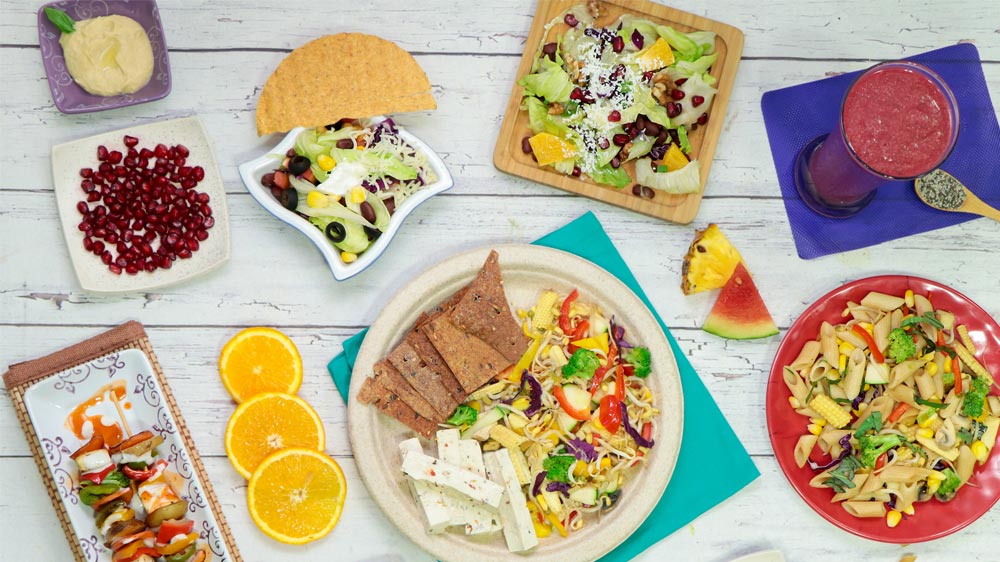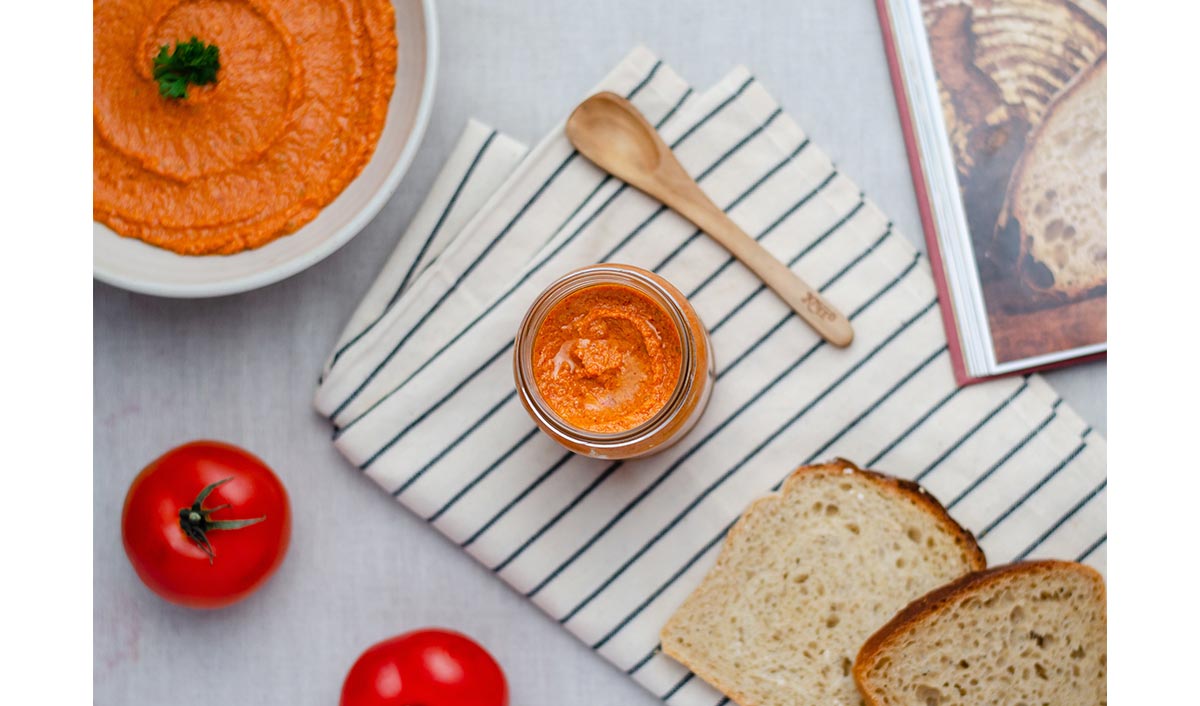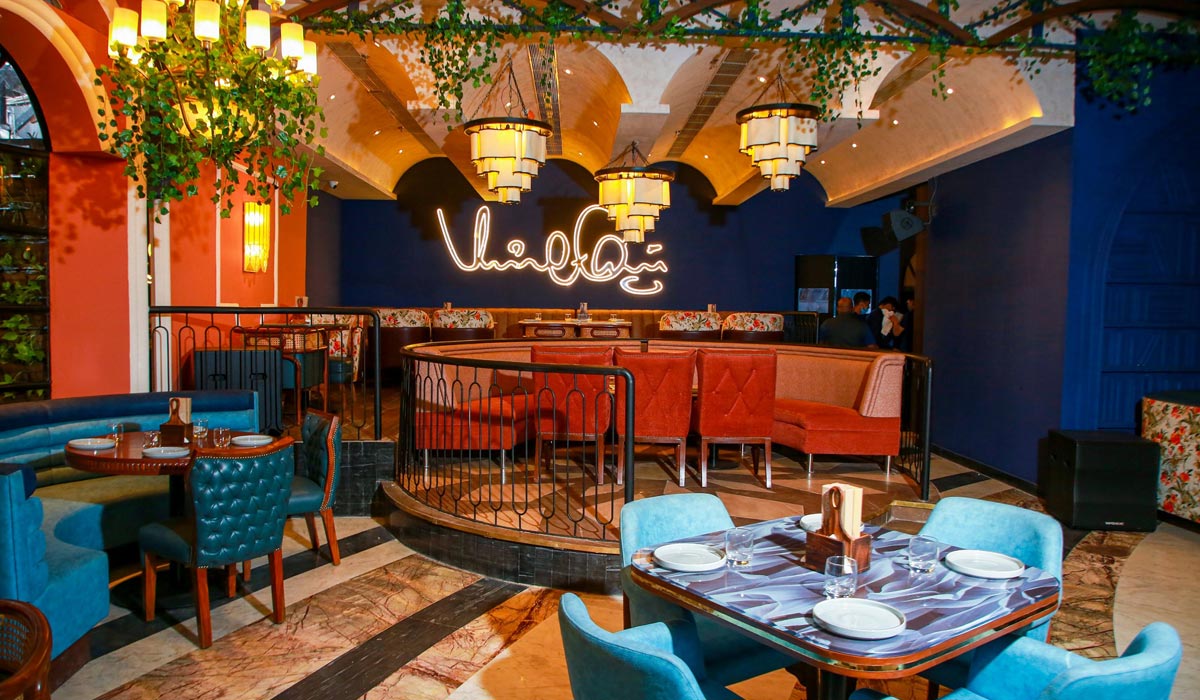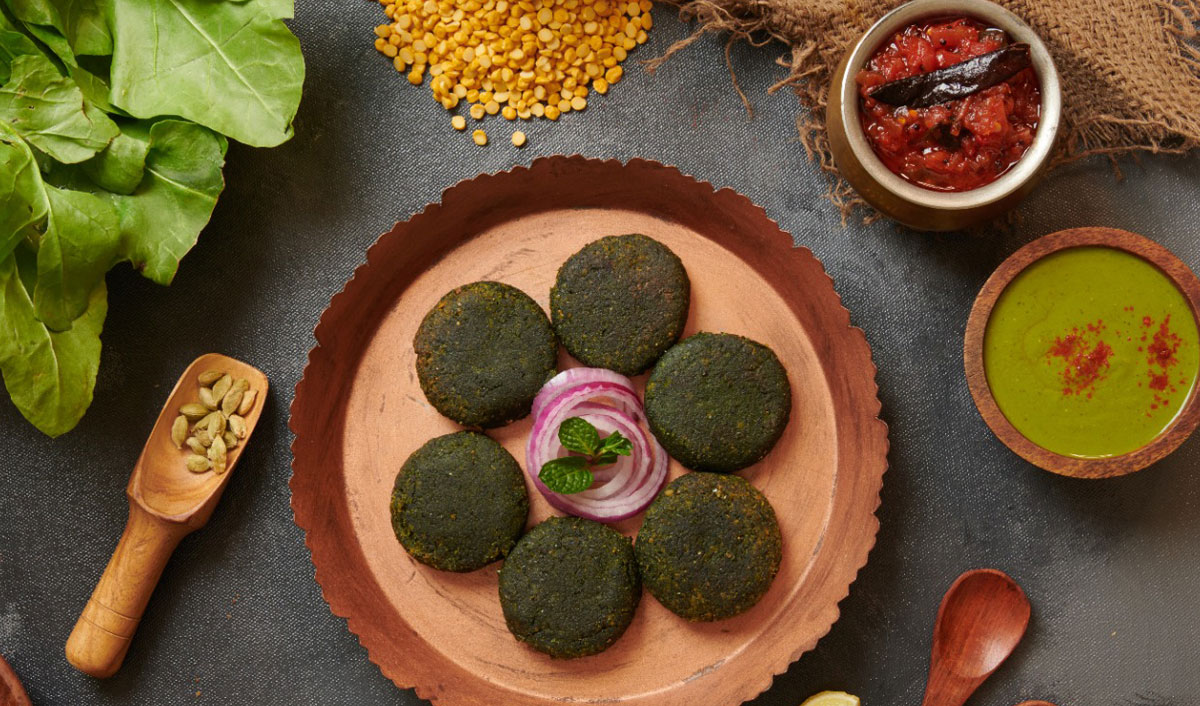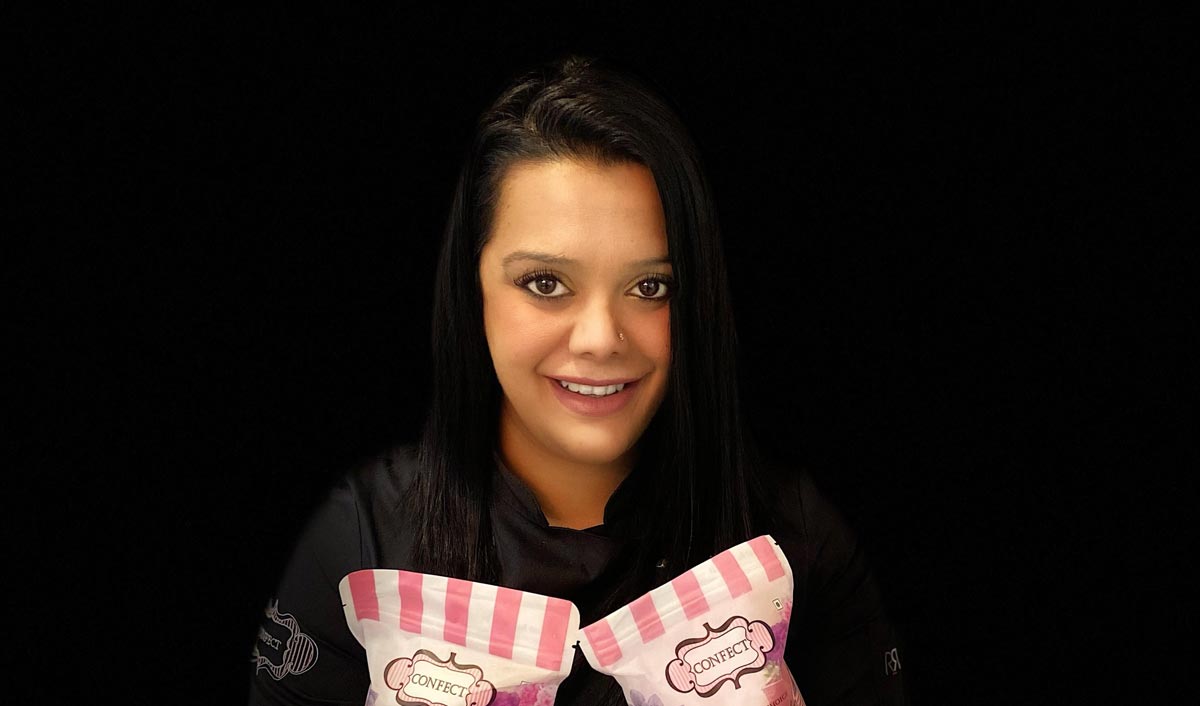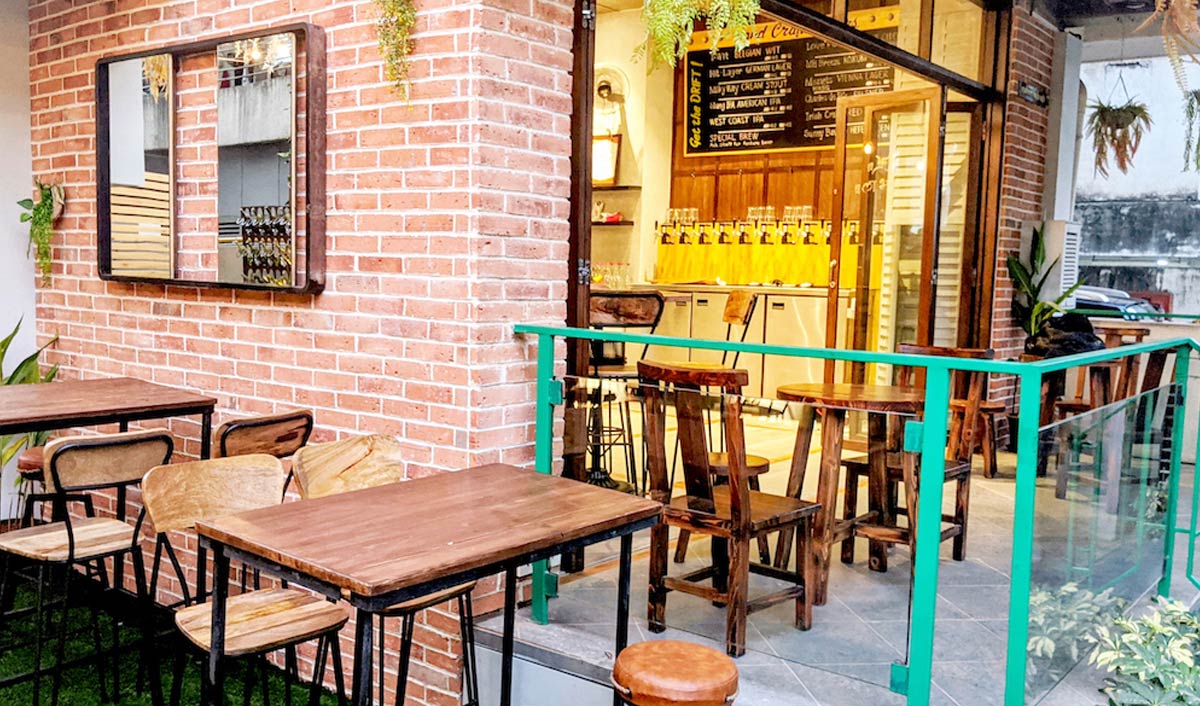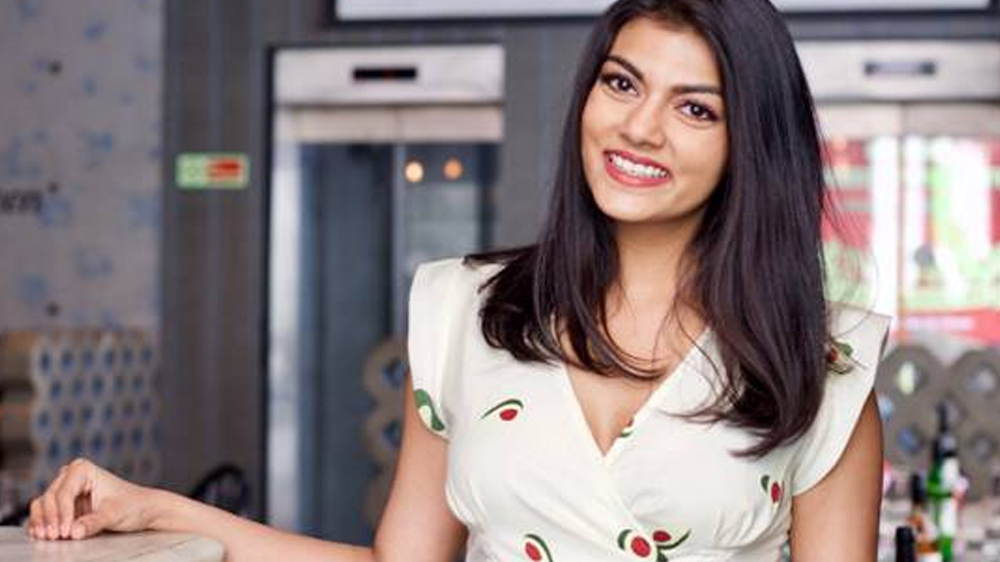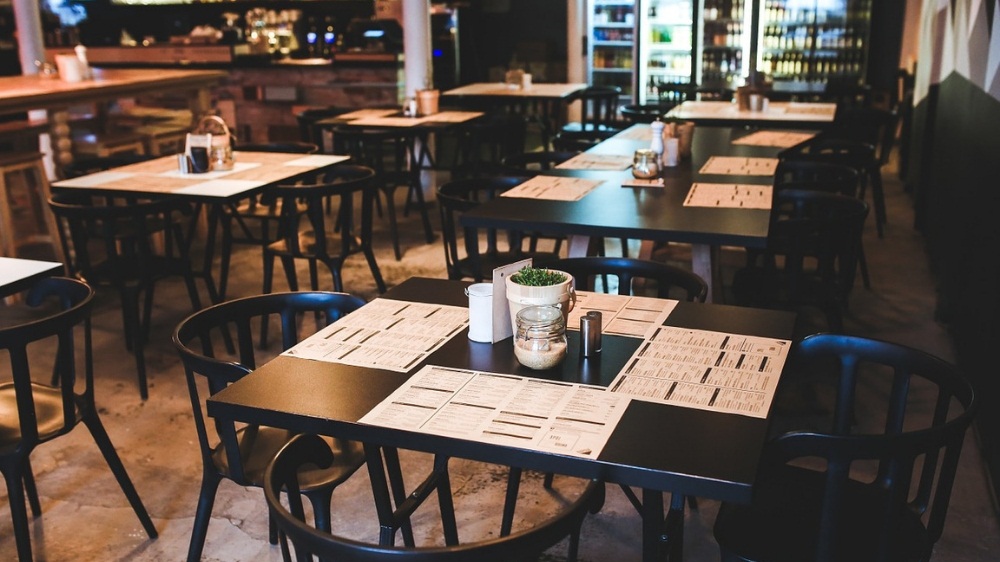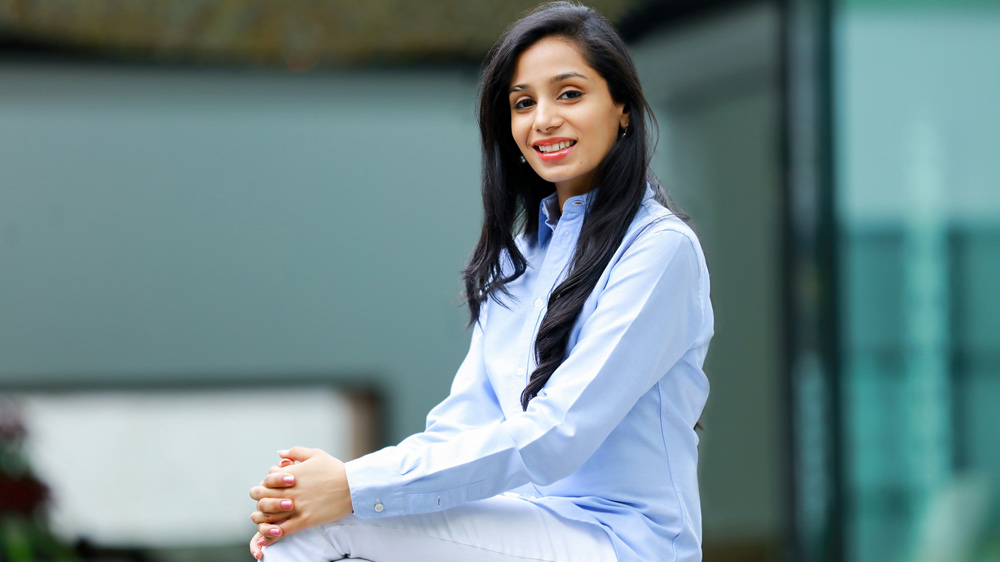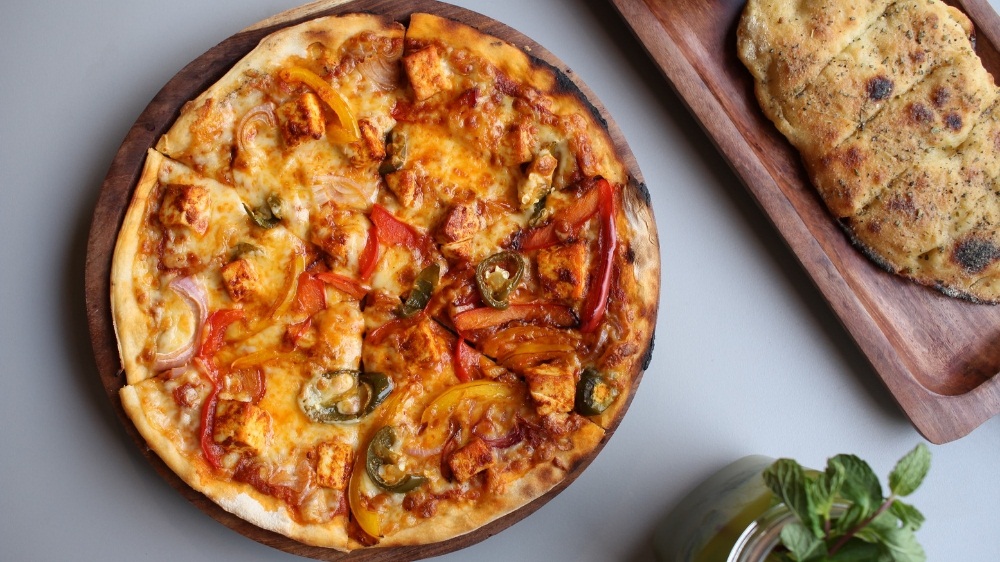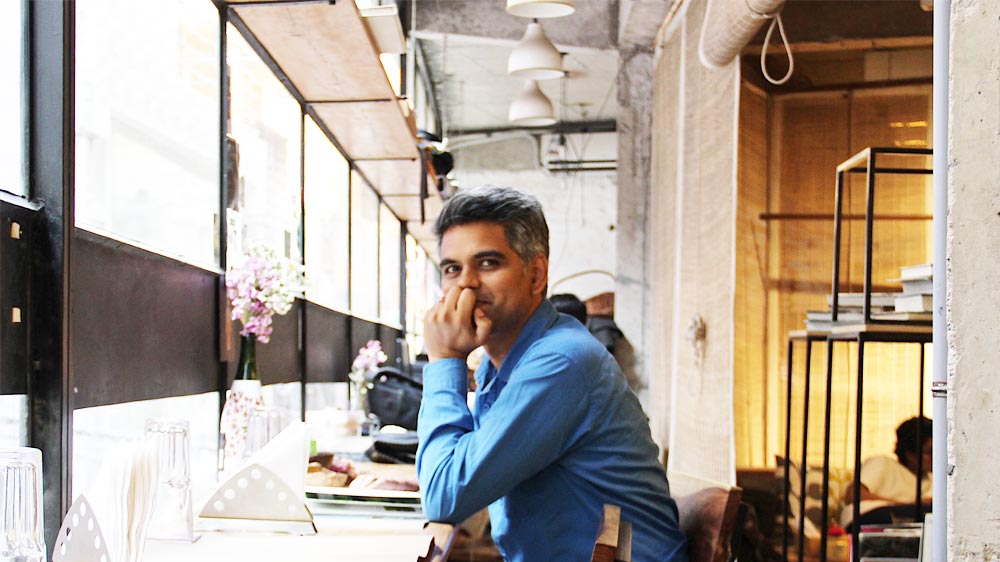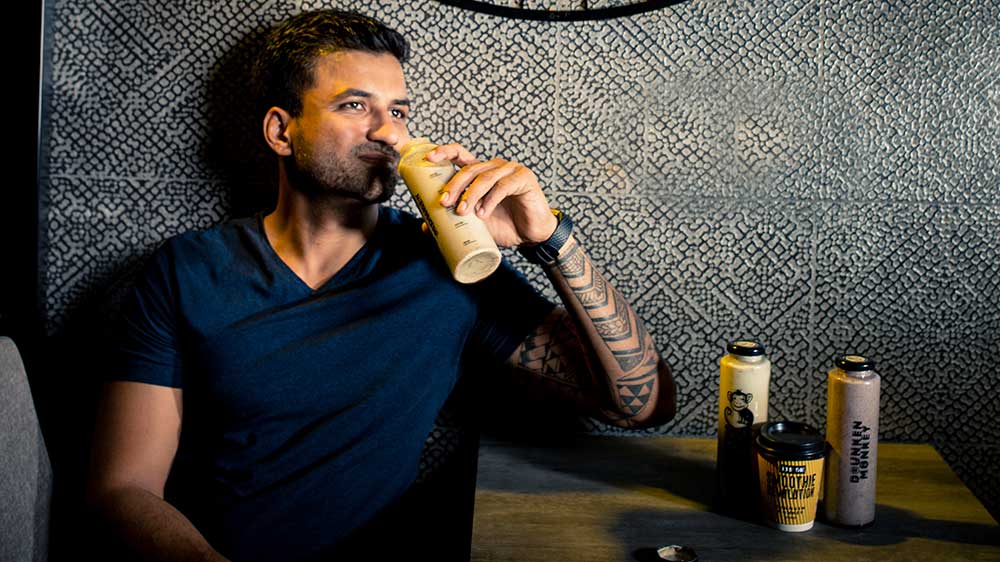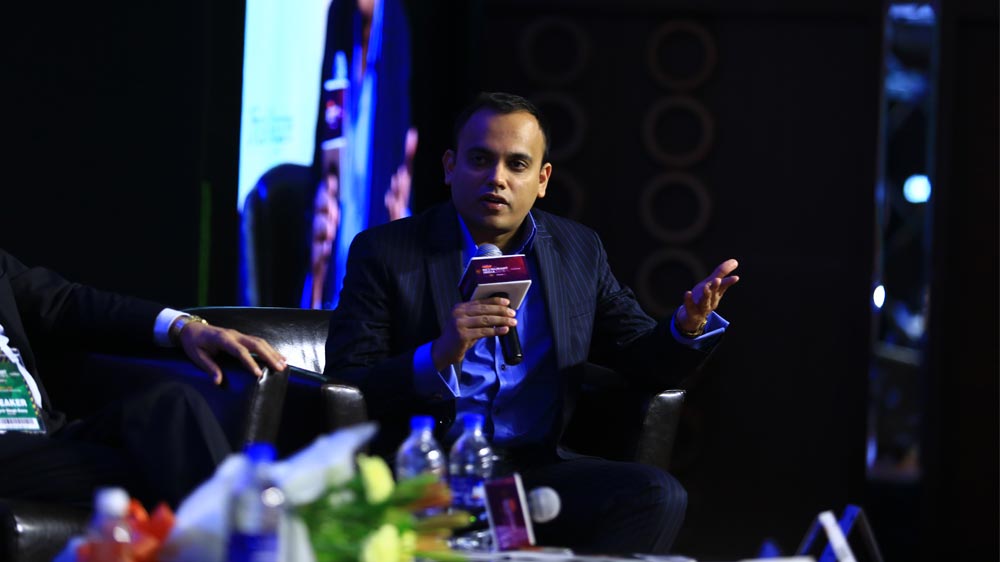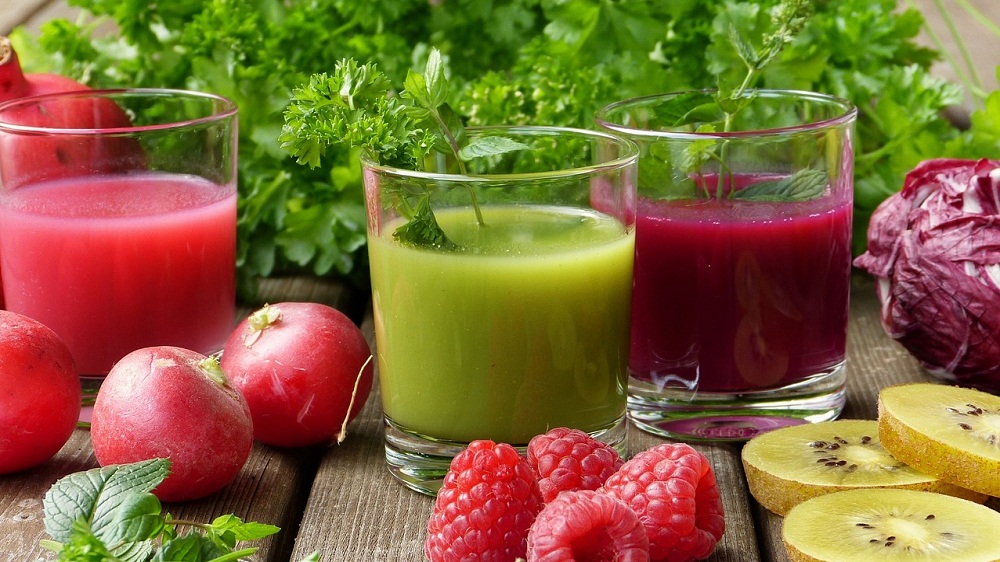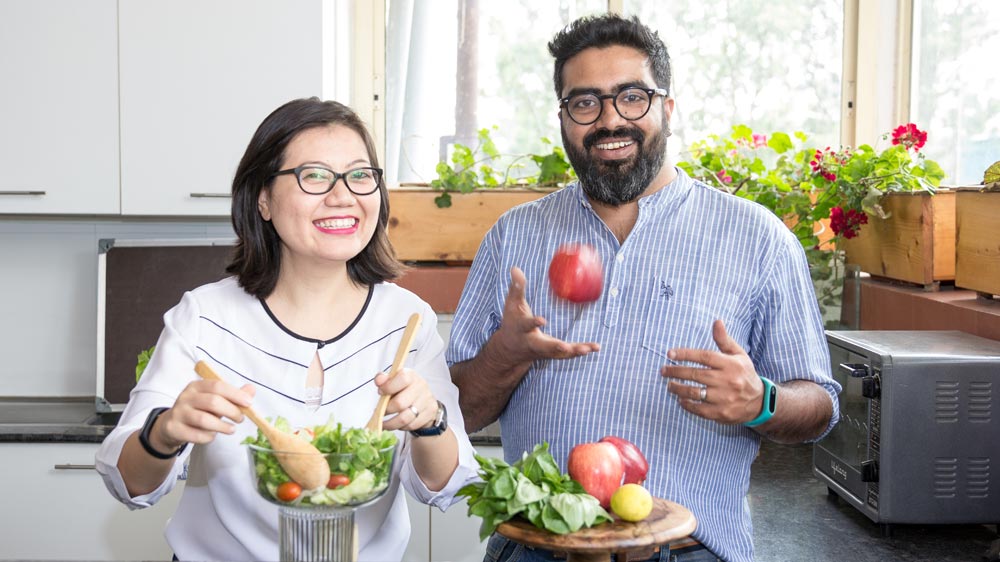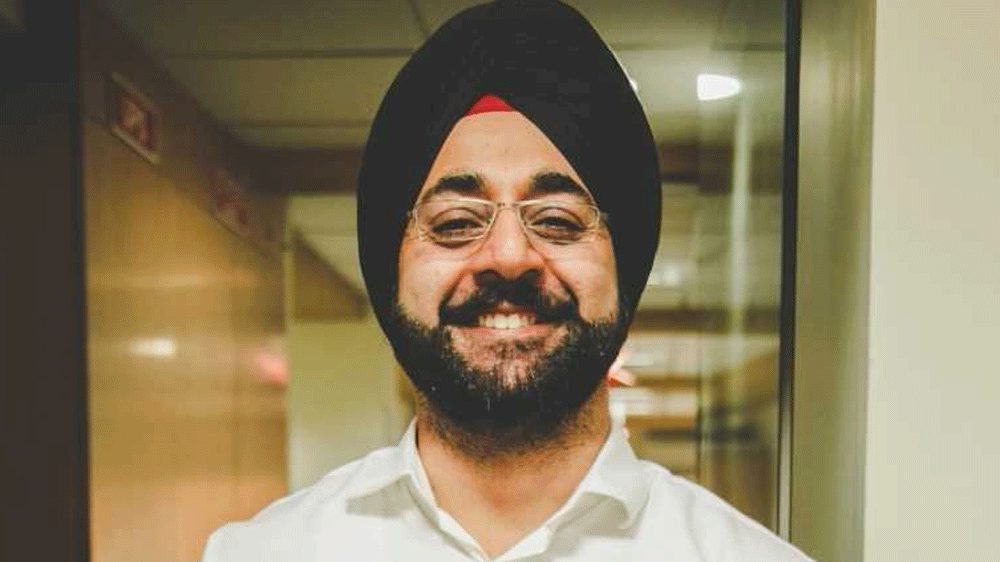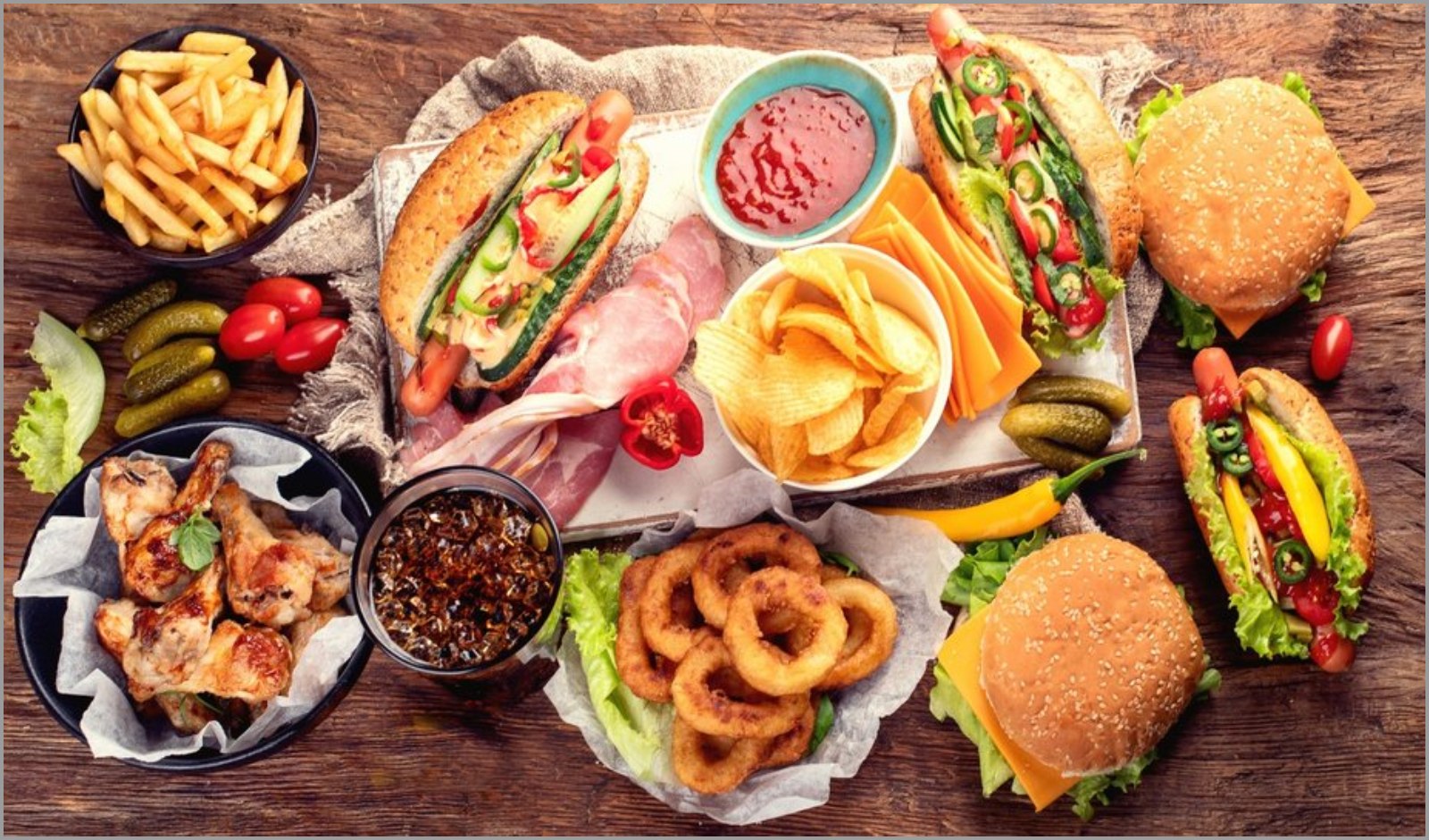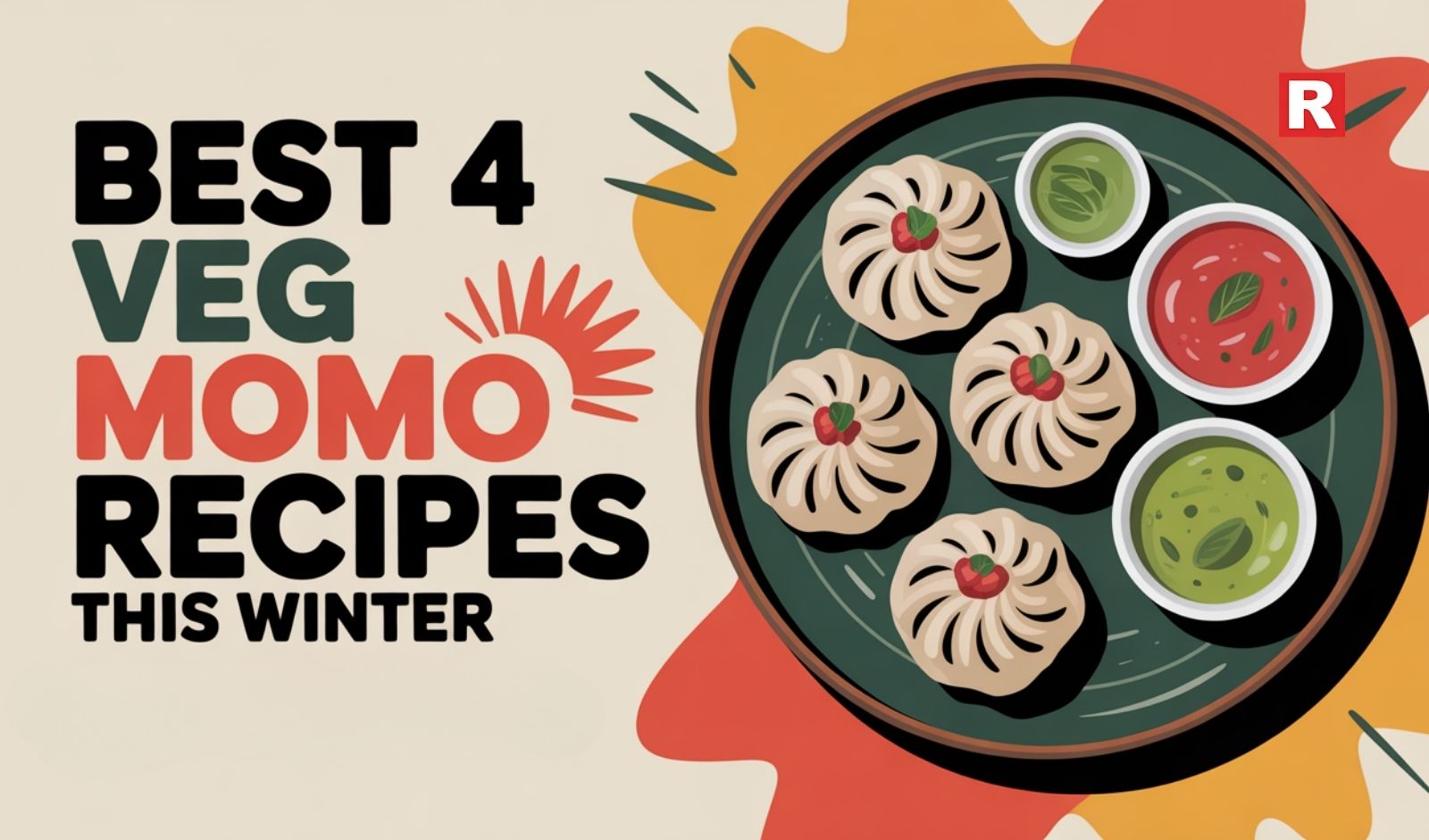
Mahima Purohit has always liked healthy food a lot. After studying advertising and management she started working with The Economist in the retention team. “I was at Fort, Mumbai and there wasn’t anything healthy to eat at the lunch hour,” remembers Purohit who was struggling to get something healthy and lite on the stomach. What best the young lady could is walk to the closest Subway and that wasn’t much of a relief because I didn’t get what she was looking for. That’s where she felt that there was a gap in the market for healthy food options to be made available at fairly healthy prices. Excerpts from the interview:
How it all began?
I quit the job and spent quite sometimes studying about salad. At that time in 2012 there was nothing easily available at the salad space and there was no information available about raw foods. I went to Newyork to study salad bars and there I got how raw food can be made tasty. That’s when I came back and put up Food stalls and approached canteen which was tough as everyone wanted to associate with a brand. I had fresh salad options and healthy foods made on the counter which I would display and get tasted at office canteens and I had no idea how Indians will react to it as eating salads as a complete meal wasn’t a trend. I tried to put up stalls at top companies including Mudra Group, few banks in BKC and that’s how we got a very positive feedback from a diverse customer base and they wanted to know where the store was and at that time we didn’t had a store. That’s when we had to tweak the menu with the customer feedback and came up with a more elaborate menu. We started our first store in Versova in 2014 and then expanded to Lower Parel opening our second store which is more like a cloud kitchen.
How are you trying to break the myth that healthy can’t be tasty?
We started with 5-6 salads on the menu. The main taste comes only if your produce are absolute fresh. We started sourcing fresh ingredients from local farms and made in-house dressing and toppings to add extra taste on the salads. And, beside that we added product which complete meal options. We added, Quinoa, khus khus, beans changing the whole perception about salads and having it as a whole meal options.
From where did you get the investment to start the venture?
It was a mix of two things. I used my savings from the job plus my father helped a little. We together invested around 5 lacs to setup the first store.
How have you changed your model from a sit-down place to cloud kitchen?
We started a place wherein people would come, sit and dine-in but over the last few years there is a transition where people are ordering food at their comfort. It is more of a delivery store. Around 70-80% biz comes from online platforms because of which we started our 2nd store in Lower Parel on the cloud kitchen model.
Who are your regular customers?
A typical customer at salad days is 25-40 years of the age. When we started we thought women would be more interested in the concept but surprisingly it is an equal proportion of male and female, people who care about health and witness.
What about the price range?
We have meal and snack options available at different prices. The snack options start at Rs 110 and goes upto Rs 220. Whereas, the meal option starts with Rs 160 and goes up to Rs 250.
What is the average order value and the ticket size?
It varies from day to day. For a typical restaurant Saturday, Sunday works as a high footfall day but for us it is opposite. We get 50-60 orders during weekdays with average ticket size of Rs 250-280.
What is your plan expanding Salad Days?
In Mumbai, I have plans to expand to Powai, Colaba as these area are respected to the kind of food that we are serving. Also, we may look at expanding to Pune in next two years.

Opening a restaurant with no money sounds like a stupid idea. However, it is the dream of many aspiring chefs and food entrepreneurs to have a restaurant of their own where customers come to try their dishes, and the rich aroma of food fills the place. But their dreams get shattered because they do not have the money or capital to own a restaurant. Realistically speaking, it is not possible to open a restaurant with zero money.
However, if you have minimum capital, resources, and the will to do something, it is possible to get your business going. A restaurant can be started even from your kitchen if you have the right business plan. So, in this comprehensive guide, we’ll be helping you understand how to open a business in a step-by-step process.
Read more: 10 Fiber-rich foods for Diabetics
What no money means.
By ‘no money,’ it doesn’t mean that you won’t have to spend a single penny. Because it is the truth that to start something, you need to have something. You just do not need to invest a large amount or take out a loan from day one. Instead, do this:
- Sweat Equity: Invest your time, efforts, and skills. They are your primary and most important investments.
- Bootstrapping: Start by investing small and reinvest the profit back into your business.
- Leveraging Existing Assets: Use the efforts you have already or the ones you can borrow from your friends or family.
This approach demands efficiency and commitment to focus wholly on the outlet.
The steps to open your restaurant with no money
1. Crafting a blueprint
Before starting your business, you need to have a solid plan or a blueprint on how to open your restaurant. You need to know what resources you currently have and how to properly utilize them.
Concept
- Start small. You do not need a huge business plan or a big restaurant to start. Smaller businesses are easier to manage as there is less equipment and fewer staff members. Also, You need to decide what kind of dishes you are going to make, like fast food, continental, seafood, tiffin boxes, etc. Because if you just focus on one food genre, you only need to buy the ingredients for that.
- Master one or two dishes so that your restaurant is known for your special dish. If people get to know about your dish, they will either tell their acquaintances about it or try other items from your restaurant. This will help you as indirect advertisement. And try to cater to specific needs like gluten-free, keto-friendly, or organic.
- You need to know what type of customers you are getting. This helps to tailor your menu, pricing, and marketing.
- You need to know about the business market. Like who your competitors are, are they doing better than you, what is your value, and is there any demand for your dishes?
Crafting a business plan
Create a concise and actionable plan.
- Executive Summary: Summarize your details. Like the concept of your restaurant, who are you serving, and how do you plan to make money
- Product/Service: People need to know the details about your menu, like the description, ingredients, and USP (Unique Selling Proposition)
- Market Analysis: Analyze your market. Your target audience, competition, and market trends.
- Operational Plan: How will you prepare the food, serve it, and deliver it? It is crucial for “no money” ventures.
- Financial Projections (Minimum Viable): You need to estimate the bare minimum startup costs (licenses, initial ingredients), pricing strategy, and break-even point. How quickly can you generate revenue?
- Revenue Model: Will you offer dine-in, takeaway, delivery, catering, or a mix? For "no money," focus on delivery/takeaway initially.
Understand Legalities & Licenses (Non-Negotiable)
These are often fixed costs, regardless of your capital. Research them early.
- FSSAI License: Mandatory for any food business in India.
- Shop & Establishment Act License: Required for commercial establishments.
- Health Trade License: From your local municipal corporation.
- Fire Safety Certificate.
- GST Registration: If applicable.
- Trademark Registration: (Optional, but good for branding).
- Partnership Deed/Company Registration (depending on your legal structure).
- Cost-Saving Tip: Start as a sole proprietorship to minimize initial legal fees. Research specific state/city requirements, as these can vary (e.g., Faridabad municipal rules).
Read more:Ice Cream Prices to Become Hot this Summer
2. The Location—Creative & Cost-Effective Solutions
Traditional storefront rent is often the biggest killer of "no money" dreams. You need to think outside the box.
Ghost Kitchen / Cloud Kitchen:
Concept: A commercial kitchen facility solely for delivery and takeaway orders, with no dine-in space.
Benefits: Extremely low overheads (no front-of-house staff, less prime real estate required).
Options:
Rent a dedicated cloud kitchen space: Numerous providers in India offer shared or private kitchen units.
Co-working culinary spaces: Shared kitchen facilities with common equipment.
Shared Kitchen Time: Renting kitchen space during off-peak hours from an existing restaurant, café, or hotel.
Best for: Maximizing reach through food delivery apps (Swiggy, Zomato).
Pop-ups/Temporary Venues
- Concept: Try choosing specific locations and setting up a temporary food stall.
- Benefits: Low commitment, minimal setup costs, great for testing concepts, building buzz, and generating initial cash flow.
- Locations:
Flea Markets: Rent a small stall.
Food Festivals & Local Events: Prime opportunities for exposure.
Collaborate with Existing Businesses: Partner with a local pub (without a kitchen), café (with an unused evening kitchen), or retail store to set up for a few hours or days. They get foot traffic; you get a location.
Home Delivery Kitchen (Strictly Regulated): In some areas, with proper licensing and hygiene, you can operate a small delivery kitchen from your home. Crucial: Check local municipal laws thoroughly.
3. Funding—Getting Ingenious with Capital
This is where "no money" truly comes into play. Your initial capital will come from unconventional sources and extreme frugality.
Know this: What Is Cold Brew Coffee? Facts You Must Know
Leverage Sweat Equity & Skills
Most of the work of your business is done by you as a chef, manager, marketer, delivery person, and cleaner. This will save salary costs. You also need to advertise your restaurant. So you have to perform marketing of your business too. Design a simple logo, build a website, and post videos on social media. Try gaining support from your personal network too. Ask a friend or family member for things they might not need but that will be of use to you. Don’t be afraid to ask for monetary help.
Extreme Bootstrapping
Find secondhand equipment from online marketplaces (OLX, Quikr), local dealers, or restaurants. For expensive equipment, consider renting or leasing initially to conserve cash. Offer your cooking services or food in exchange for help with marketing, repairs, or small equipment. Also, money earned in the beginning of your business should go straight to investment in your restaurant.
Friends & Family (Loans/Small Investments)
Approach trusted friends or family members for small, interest-free or low-interest loans. Even with loved ones, put everything in writing (loan agreement, repayment schedule) to avoid misunderstandings. Offer a tiny percentage of your business in exchange for a small investment, but be very clear about terms.
Read this: What is LTO Food? Limited-Time Offer Definition and Meaning
Crowdfunding Platforms
Platforms like Kickstarter, Ketto, or Milaap can be used to raise initial capital by pre-selling meals, offering unique dining experiences, or selling branded merchandise.
Also, you can present your compelling story, unique food concept, and what the funds will be used for. Offer attractive rewards to backers.
Microloans & Government Schemes (Post-Initial Traction)
While difficult to secure with no track record, once you've shown some initial sales and operational proof, you might qualify for:
Mudra Yojana: A Government of India scheme providing microcredit loans to small businesses.
Other SME/Startup Schemes: Research state-specific or national schemes for aspiring entrepreneurs. These often require a basic business plan and some proof of concept.
4. Operations—Lean, Mean, and Delicious
Every decision needs to be made with cost-efficiency and maximum impact in mind.
Menu Engineering for Profitability
A limited menu means less inventory, less waste, and simpler operations. You should focus on dishes with high ingredient markups. And choose such ingredients that can be used across multiple dishes to reduce inventory complexity and spoilage. Buy seasonal ingredients from local vendors. This way, you can reduce the costs and support the community. Only buy in bulk if you have guaranteed demand and proper storage to avoid waste. Only keep the essential equipment. Like the one you need to make your core menu. A single stove, a small refrigerator, and basic utensils. Choose such equipment that can serve multiple purposes.
Staffing
Initially, you will be doing everything: cooking, cleaning, marketing, taking orders, and delivering. Or you can ask your family/friends to volunteer to help during peak hours. Or you can hire a part-time worker when absolutely necessary and your revenue supports it.
Know this: Top Vietnamese Coffee Brands Making Trends in India
Marketing on a Shoestring Budget
Try to advertise your food through different methods like:
- Social media
- Word-of-mouth
- Local Partnerships
- WhatsApp Marketing
- Loyalty Programs
5. Growth & Sustainability
Once you've launched and are generating revenue, the challenge shifts from opening with no money to growing sustainably. Resist the urge to spend the profit you just earned. Every extra money should go back into improving your business (better equipment, more inventory, modest marketing). Also take feedback from customers and use it to refine your menu and operations. Don’t rush to expand your business. Firstly, master current operations and then think about others. Never compromise on the quality of your food or service. This will build you a good reputation.
Conclusion
It's not easy to open a small restaurant with "no money." It necessitates unmatched commitment, tremendous selflessness, astute preparation, and an unrelenting quest for effectiveness. Your culinary dream can, however, become a reality by embracing innovative approaches to funding and location, adopting a lean startup mindset, and making the most of all available resources. It's a journey of fervor, tenacity, and demonstrating that an entrepreneur's unwavering spirit can sometimes be their greatest asset rather than their bank account.

In the fiercely competitive food and beverage industry, Chica Loca by Sunny Leone has carved out a unique niche. The brand seamlessly blends gourmet dining, high-energy nightlife, and immersive storytelling to create memorable dining experiences. A collaboration between Sunny Leone, Actor and Entreprenuer; and Sahil Baweja, Director, Singing Bowls Hospitality has spelled magic in Noida’s bustling restaurant scene.
“We focus on the experience around food and gourmet cocktails that appeal to a wide audience,” says Baweja. This customer-centric approach, paired with well-defined formats such as Retrobar and Club, has been instrumental in the brand’s success. Baweja emphasizes, “Loyalty today isn’t just about certain dishes but the ability to deliver quality and novelty consistently.”
EXPANSION
Expanding to new markets is no casual endeavor. “We analyze demographics, lifestyle habits, and the culinary exposure of a city before making a move,” Baweja explains. Currently, they are in Noida and will be soon expanding more in Delhi NCR and then Lucknow, while exploring opportunities in Ludhiana and Hyderabad with local partners.
He also highlights the importance of flexibility:
“A Tier II town might require a space that caters to families, young couples, and partygoers on different days to ensure viability.” This adaptability, paired with Sunny’s widespread appeal, helps them connect with diverse audiences and turn new locations into bustling hotspots.
BALANCE
While adapting to local tastes is crucial, maintaining the brand’s core identity is non-negotiable. “Sunny, Daniel, and I draw from global experiences to ensure our identity remains high energy, ever-evolving, and welcoming,” says Baweja. This consistency is reflected in Chica Loca’s design, marketing, and storytelling, which infuse a touch of drama and entertainment into every element.
CHALLENGES
Scaling operations across cities comes with its share of challenges. From varying venue sizes to adapting menus and design elements, the brand ensures consistency without losing its creative edge.
“Training and hiring in emerging markets can be tough,” admits Baweja. “We address this by sending trained staff from flagship outlets and investing in team development to minimize attrition.”
Technology plays a pivotal role in their growth strategy. From centralized controls for audits and training to loyalty management and social media monitoring, technology ensures seamless operations across multiple locations. “Our custom software integrates local and centralized tech for efficient management,” Baweja explains.
EXPERIENCE
What truly sets Chica Loca apart is its ability to create an unforgettable dining experience.
“Our menus tell stories, and our chefs and mixologists engage directly with customers to craft bespoke dishes and drinks,” shares Baweja.
Combined with world-class service and an inclusive atmosphere, Chica Loca delivers a Tier I experience, regardless of the city.

Abhishek Sarwate & Shweta Tare Sarwate of Utopian Smoothies had a sedentary lifestyle in their corporate jobs, and wanted to have something healthy and realized there was nothing that was readily available to them for a healthy lifestyle. That’s when the duo started their fresh smoothie dark kitchen in 2020. The trial lasted for nearly two and half years, helping them understand that there exists a love for smoothies with the millennials and Gen-Z. “In this period we identified the right product market fit, the problem faced by our consumers which is more about getting timely deliveries, about convenience and ready availability. To solve this we thought of building a healthy smoothies’ brand in the packaged segment, Utopian Smoothies was launched in June 2023,” they shared by adding that their entire focus is on creating a product that speaks nutrition. We have launched with 4 variants namely Wholesome, Energy, Immunity and Detox; all of them are unique and are in true sense good for you with Vit C-rich fruits, Indian herbs, a lot of fruit, vegetable and superfoods, which are usually not present in fresh smoothies. According to them, these smoothies are something that people can have every day without worrying about consuming extra sugar (it has only natural sugar from fruits and honey), eating any preservatives or harmful colours, flavours and artificial sweeteners. Excerpts from the interview:

How do you see the market potential for packaged smoothie products?
Our offerings are quite unique. We offer Wholesome and Energy as breakfast-in-a-bottle and Immunity and Detox as Smoothie shots. So, in terms of category, we have products in breakfast and pure juice categories which, according to Goldstein Market Research, will become a $20 Billion market by 2030. We know that packaged smoothie is a new concept in India, but it is very popular abroad with brands like Innocent and Naked dominating the market. Our lifestyles are becoming increasingly hectic, and we believe that the convenience factor will drive growth in the packaged smoothie segment.
How has been the response so far as you are a new brand?
We are growing 3x month-on-month and plan to continue a good growth trajectory in the near future. We have been doing a lot of sampling and tasting sessions and have built on our retail presence across a number of stores in Mumbai and Pune and we are witnessing good sales through these stores. Also, we are present online on various channels and deliver smoothies pan India and receive a lot of orders from Bengaluru.
For the first 6 months, we will be focused on creating brand awareness and educating more people about our smoothies, the benefits of having them on a daily basis, and how they can conveniently incorporate smoothies into their daily routine for a fit and healthy lifestyle.
We also see that brands like Drunken Monkey etc have made a mark with their smoothie. Any competition from them? Also, any plan of opening your own kiosk/stores?
The smoothie market in India is at a nascent stage. Drunken Money is one of the few chains that focuses on smoothies but in the packaged segment there are none so far. We at Utopian Smoothies specialize in creating breakfast in a bottle –on-the-go slurpy breakfasts that are light on your stomach, good for your gut, and heavy on nutritional values. A lot of work has gone into making our smoothies wholesome and nutrition-rich by incorporating millets, oats, good fats, fruits and superfoods, all in a travel-friendly bottle. We want to create a mark with our focused approach towards great ingredients, convenience, and great tasting smoothies. We are also looking at partnership with stores across India that share our brand ideologies and promote clean and healthy eating habits.

What are the different types of smoothies available and how have you priced them?
We have launched with 4 flavours namely Detox, Wholesome, Immunity and Energy. They are priced at Rs. 160 for a 200ml bottle that comes in a premium and sustainable polypropylene packaging, where the bottle can be reused and recycled thus saving the environment.
Sourcing fresh & local produce is the mantra these days. From where do you source the ingredients (fruits/veggies) for these smoothies? Which is your top selling smoothie till today?
We promote local farmers and local produce. We source all our raw materials from the local vendors and farmers from nearby areas like Nashik and Pune. For us sustainability and Indian produce is of utter importance. We take pride and say that our products are focused on Indian Fruits, Indian Vegetables and Indian Millets, and Indian Herbs. Our idea is to make people understand the benefits of Indian fruits and herbs and millets.
In summer, we were getting more demand for Wholesome SuperSmoothie, which is our Alphonso mango smoothie. But now, during the monsoons, we are seeing demand increasing for our Immunity and Detox variants.
How many bottles have you sold? What’s your market presence?
We are new to the industry & the market; we are witnessing steady growth in these 2 months. We are aiming to close this month with sales of around 3000+ bottles across India.
We mainly sell our smoothies online through our own Website (https://www.utopian.fit), Amazon, JioMart, Swiggy Minis and deliver pan India. We do same-day/one-day delivery for orders in Mumbai, Pune, Bengaluru, and Delhi. We have started to build our retail presence in Mumbai and Pune and are present in around 30 stores. This month, we have started to build our presence in offices across Mumbai targeting corporate employees via partnerships with co-working spaces such as Awfis (available at all 20 Awfis locations in Mumbai).
Are you also targeting the HORECA segment? Who do you target as your customer?
Yes, we will look to increase our presence in the HORECA segment soon. We are currently focused on modern retail, organic sales and online visibility, for the course of the next 3 months. Our customer focus is corporate employees, white-collar workers who need to sit at their desks as part of their job for long periods of time. They are aware about healthy habits but, because of their time constraints, are looking for something convenient to solve their needs. We also want to target fitness enthusiasts and millennials, who are much more aware about what they consume and read the labels before buying any products.

What’s your expansion plan?
From an expansion point of view, we first plan to target the Mumbai city, and sooner into geographies like Pune, Delhi and Bengaluru. We are targeting entering 200 office cafeterias in the next 6 months, where we can sell as well as conduct sampling and information sessions with the customers. For next 6 months, we plan to educate our customers about the product, highlight its benefits, and do more one-on-one interactions with our consumers. The idea is to create an impact with the consumers. This will be a focused and targeted approach in Mumbai, and will soon expand to cities like in Pune, Delhi and Bengaluru.
Our idea with Utopian is to make this a brand that’s synonymous with a healthy lifestyle in India. We promote the importance of eating fruits everyday and as most skip doing that we bring Utopian Smoothies for easy fruit consumption.
Are you also in talks with any investor/any funding round?
Yes, we are in the process of fundraising. We are in talks with a few angel investors and VC’s. We will share the news soon.
5 trends you see will change the beverages business in the next 5 years.
With the increasing importance of nutrition and the “No Sugar” trend, we feel that the focus has already shifted towards healthier alternatives. There are videos and articles every day that break the perception of “healthy” and reveal the truth about popular brands. Our consumers do not want to have artificial sweeteners and don’t want those sugar spikes, but at the same time want to eat healthy & stay fit. This generation cares about their wellbeing. Our offering is simple, we give the benefits of having good skin, good hair, healthy gut, happy mood all packed in a bottle that is made of fruits and good things only.

Uday Malhotra’s journey started way back in his childhood while growing up in a Joint family set-up where meals were generally eaten together. “From my Dadi making a curry out of leafy vegetables to my Nani’s best rajma chawal ever, there was so much food happening around, I found myself hovering around the kitchen many times during the day,” he remembered as his interests landed him to IHM-Aurangabad. As college began, he was exposed to the basics & then advanced cooking skills as he moved forward.

In 2017 when he was working at a 2 Michelin starred restaurant named “TERRA by Paco Perez”& saw things that he never could have imagined. “It was almost as if I had never really discovered my truest potential. That became a driving force for my learning days in TERRA and I started enjoying the profession way more than before because everything was just perfect, it had to be,” he pointed as these experiences made him a tough man to begin with and also very humble. Excerpts from the interview:
How it all began?
While I was doing food styling professionally, the creatively hungry man in me wanted to explore brand designing and brand management. I went to Florence, Italy to pursue my masters in brand design and management related to food, wine & tourism from IED College in February 2020. Now as we all know, the pandemic got the best of all of us at that time and Italy was shut down. My college had shut down within just 2 weeks of its commencement & I was stuck, paying heavy rents and sustaining myself for 4 more months until I flew back to India in a rescue flight.With so much fear and anxiety around things not working out, my college friend and now more like a brother & partner at KNEED , Arjun Sethi connected with me and proposed to me this idea to make healthy breads. As I was already baking them so much at home and the feedback had been great, we both started to work on an idea that would not only fuel my own passion for food that had been dying to come out in some or the other way, but also develop recipes which would be Vegan and would support the environment.

You both got exposure across the globe working with top chefs and hotels. What are the key learnings you are incorporating in Kneed from these experiences?
Learning experiences are something that happened to us every day and what I learned back in Spain and Mumbai was punctuality, sincerity, perfection& honesty. Without any of these, there are very sleek chances for as an aspiring Vegan brand to become admirable by the masses.
We see that the pandemic has given birth to so many bakery, home chefs. Why so?
The pandemic, while it has had its share of negatives, it has also given so much more time to people where they have explored some of the most great things about themselves. This has not only led them to invest in new things and hobbies but also to probably cook & bake something new with friends and family at home. With platforms like Youtube & Pinterest, there is hardly anything you can’t do or find that you could probably enjoy doing once in a while. You see, food unites us in ways that is almost magical & to convert that into something professional, it could be a dream come true for many who were clueless before or during the pandemic.
What’s the future of bakeries in India?
According to me, we are going to see a rise in health conscious bakeries in the coming time and moreover a drastic change in perception as to how we look at bakeries.
What are the different kinds of products available at Kneed? Is it freshly made daily or does it come with a shelf life?
We have a wide range of offerings at KNEED which range from artisanal breads, buns, panini’s, pull-apart breads, pita’s, hummus, stone-ground nut butters, spreadips ( Spread+dip) , granolas & bliss bars ( Energy bars ). Everything at KNEED is made fresh on order and not pre-stocked. It would defeat our purpose to make fresh clean food. Once we receive an order, we process it and deliver it the next day which carries a date of expiry which is different for each product.
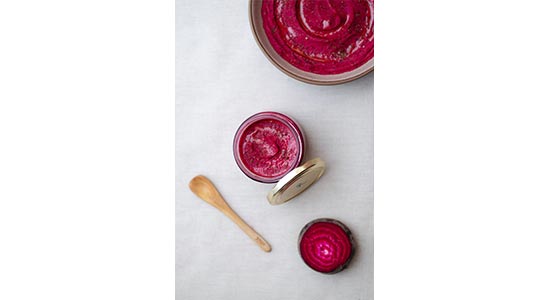
Where do you source your ingredients from as we see that customers’ are growing their interest in locally sourced, sustainable products?
We are the happiest to see this wave of demand already grow, with people wanting to buy local. Locally sourced sustainable products are majorly free from chemicals and grown organically/ sustainably. We at KNEED follow the same values and source our products locally from different local brands & farmers markets that suit our requirements. Like our flour, the most important ingredient for any bakery, comes from TWF. Which is the world’s first flour company that provides unbleached & unadulterated premium flours which are ground fresh on order, based out of Noida, UP. Like this, we have tie-ups with Organic brands like Organic Tattva , Organic Pure & sure and so on to meet our daily KNEEDS.
What’s your expansion plan?
As of now, we are building awareness about KNEED and in the future, we are planning to venture out in Vegan experiential dining under the name of “THE KNEEDY TABLE” and also have an all-in one store for all artisanal bakery needs, from flours to tools and special equipment’s under the name of “KNEED ESSENTIALS”.

Located in the heart of the city, LMNOQ is the newest addition to the choice of sky bars in Kolkata.
Situated on the 12th floor of Magma House, this high rooftop hangout is spread across 8,000 sq ft plus, the 150 seater space, including outdoor and indoor, in the ever buzzing Park Street promises more than a delectable culinary selection and unique beverages— an impeccable panoramic view of the city’s skyline and an exhilarating experience, from the moment one steps in.

The name LMNO_Q is derived from the musical notes of `The Alphabet Song’ where “P” has been playfully removed and “Q” has been introduced. The introduction of Q is what connotes and comes together as the concept and vibe of this unique outlet. LMNO_Q’s interior and ambience is something worth looking forward to.

The ceiling of this upscale sky bar, dawns an installation of hundreds of birds, which signifies a continuous flight of ecstasy. The brand aims to be the place which brings together a sense of calm in this bustling City of Joy.
Artfully curated by the magical hands of Masterchef Shaikh Arif Ahmed & consultant Chef Amit Puri, LMNO_Q boasts a global cuisine with a variety of options for both vegetarians and non-vegetarians.

The legendary Shatbhi Basu takes charge as the consultant mixologist of LMNO_Q and promises to offer patrons some exclusive heady concoctions.

Raajiv Nathany, Co-owner, along with Sanjeev Nahata and Sandeep Goenka sais “We are thrilled to introduce a one of a kind skybar in the City of Joy. LMNO_Q is a place where patrons can get together, score a laugh, enjoy and make everlasting memories with their loved ones. This place brings in a unique aura and a distinctive experience to the city revelers as it brings the heart of the city on its deck.”

Bangalore’s favourite French café, Café Noir, is set to open its doors to gourmands from the city of dreams, Mumbai.
Situated at the iconic Lodha World One Towers in Lower Parel, Café Noir will serve its signature range of French and Italian bistro-style food, along with a selection of fine coffees, teas, and wines.
The cafe is slated to open in the last week of October 2021.
Established in 2009, at the premium UB City Mall in Bangalore, now has four outposts in the Garden City. This will be its first outlet, outside of Bangalore.

“Café Noir has been a favourite spot of guests in Bangalore seeking a wholesome & relaxed dining experience, in a setting that transports you to the cobblestone-lined streets of Paris. When deciding on the first location for this brand outside of Bangalore, Mumbai was a unanimous choice amongst the Stakeholders, for the city, is known for its rich association to good food, and also the discerning palates of its many diners, who will surely be gratified with Café Noir’s brand ethos of promoting the French Art De Vivre,” said Dawn Thomas, CEO & Co-Founder of V&RO Hospitality, the company that owns the brand.
The magnificent Lodha World One Towers make for a perfect home of the first Café Noir outpost outside of Bangalore, with its posh South Bombay surrounding, it imbues a sense of space, calm and opulence in every bit.
“We have also introduced a selection of items under the Keto and Vegan diets category, to accommodate the palates of our health-conscious consumers. A handpicked selection of fine wines, along with a wide selection of coffee & tea varieties will keep guests sated,” he added.

A weekend is not just a set of days at the end of a week. It’s a feeling, a vibe of its own!
The Weekend launches its first luxury alcohol retail store & restaurant, the one and only BYOB concept in Sector 104, Noida, UP.
The store redefines liquor buying along with drink & dines experience on-premises.
“The idea behind such a concept is to provide patrons with an all-inclusive space where they are allowed to buy a bottle of alcohol and drink in a restaurant setting. This framework allows consumers to visit The Weekend and feel that it is value for money as one pays a huge amount for a few cocktails in the same setting elsewhere,” shared Vatsal Goel, owner, The Weekend.
A pleasing paradise for the booze heads with stunning assemblage of single barrel bourbon to French malt whiskey to 48-botanical gin, The Weekend secures an opportunity for one to enjoy a selection of rare spirits at state prices.
This all-encompassing boutique liquor store is an immersive space to shop for premium liquor that offers a selection of imported wines and alcohol along with an unmatched dining experience.
The first floor of ‘The Weekend’ opens the door to an upscale rooftop restaurant that serves customers with gourmet offerings prepared by their in-house experts. The store allows one to pick up their bottle/liquor of choice and take it into the restaurant to sip with some snacks.
The menu features delicacies ranging from Italian to North Indian in mains, from scrumptious nibbles to munch on to snacks, soups, salads, and sandwiches to pair up with the perfect liquor.
The launch of the Noida store also followed openings of two similar concept in Vasundhara and Indirapuram where the liquor stores are currently operational and BYOB restaurants are to start by the end of the month in both the locations.
With 5 more outlets in pipeline to be launched together across Delhi by December 2021, the brand aims to align liquor purchase and consumption at the premises in a restaurant setting.

Following the continued success of the award-winning resto-bar Butterfly High in Mumbai, the popular social networking restaurant is set to open its second outlet in the heart of Thane.
Spread across 3500 sq. ft, the all-day restaurant is the brainchild of Nikita Poojari & Narayan Poojari, the owner of Shiv Sagar food and resort Pvt. Ltd., and managing partners: Dhaval Udeshi, Pawan Shahri, and Nikhil Rochlani.
This cosmopolitan hangout spot is all set to bring its intriguing blend of Modern Indian cuisine, inexhaustible portfolio of cocktails, and eccentric interiors of its BKC outlet, with an exclusive menu just for Thane.
The interiors of this millennial manor are a living embodiment of funky and contemporary vibes with cozy and comfortable seating. For those Instagram-worthy photos, there’s plenty of natural and ambient lighting to capture your happy moments. Four sections make up the entire space; The Lounge Seating, The Main Dining Area, The High Dining Tables & Private Dining.
“We are excited to announce the opening of Butterfly High in Thane. We believe that Thane needed a space where people could dine, work, and party all in one place. We wanted to create a space that had a little something for everyone in Thane,” shared Poojari.
Also, if you’re looking to work at a place away from home or simply seeking a way to end your day on a high note, this is the perfect place for you.

Gone are the days of black-tie affairs and over the top dining; it’s time to enjoy food in its truest form—casual and comfortable, yet still chic.
Bringing the finest of age-old cuisine, albeit with a new-age twist to Thane is none other than the freshly revamped Masaledaar Modern India kitchen And Bar!

Launched by the brainchild behind The Thane Club and curator of the famous LoveLeaf restaurant, Niketa Sharma, Masaledaar offers a brilliant present-day perspective on our desi wholesome cuisine—one that seamlessly balances the two sides of the spectrum. Bathed in regal colors of the sea, teals, whites, and summery blues, the divine restaurant and kitchen complements Thane Club’s sweeping crystal blue waters of the pool.

“Thane has always been home to up and coming restaurants, with its beautiful expanse and lively crowd. At the Thane Club, our aim has always been to bring the best of the best right here. With the launch of the newly redesigned Masaledaar, we hope to continue to fulfill people’s wishes to try out new varieties of food and find a place to make all their memories,” shared Niketa Sharma, CEO Thane Club and Chief Curator, Masaledaar Modern Indian Kitchen and Bar.

Masaledaar is helmed by Chef Gaurav, known for his stints at Masala Library, Farzi Cafe, and Punjab Grill, and his inimitable ability to convert a known dish into a culinary miracle.

Virat Kohli’s iconic resto-bar One8 Commune has opened its doors in the city of Kolkata.
Located in the heart of the city at Golden Park, Kolkata, the place upholds a thoughtful blend of the old-world charm with the contemporary.
The décor complements the guise of togetherness, while incorporating the ambience of the city’s nostalgic heritage. After its inaugural outlet in Delhi’s Aerocity, One8 Commune is now ready to steal the show of the resto-bar community of Kolkata.
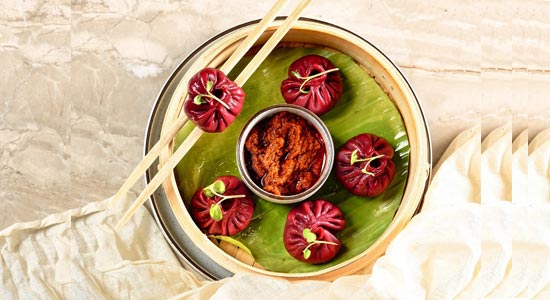
“My connection with Kolkata has always been very joyous and remains integral to me from my under-19 days till today. Calcuttans know how to do justice to the food and Kolkata’s food culture has always been fascinating to me hence we thought One8 Commune could be a fantastic addition to the city's gastronomic preferences with a bit of our distinctive twists,” shared Kohli.
Designed by renowned interior stylist Sumessh Menon, the signature resto-bar spreads over an area of 4,500 sq ft plus and has a seating capacity of 100 covers that includes capsule style pods and a distinct raised VIP seating space, with a backdrop of an LED lit signature of Virat Kohli.
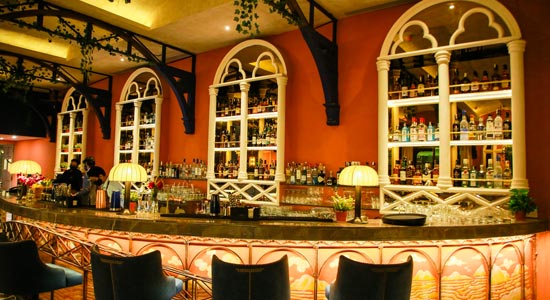
The colour palette includes shades of rust, olive green and blue in varying tones and textures to add drama to the whole space.
The finely curated menu by Chef Pawan Bisht is a diverse and vibrant multi-cuisine menu that caters to a global palate; right from staple Pizza-Burger re-inventions, to heavy-duty community platters, the menu balances it all with élan.
The beverage menu boasts of concocted signature cocktails that evoke generational moods, ranging from the classic 50s, Retro 70s to the current millennial generation.
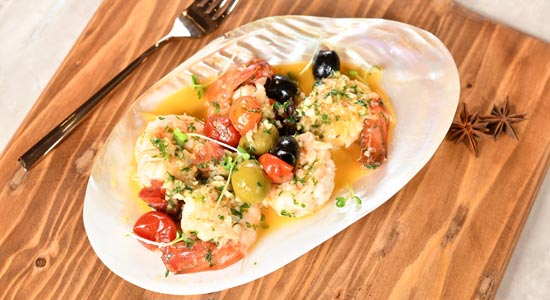
The unabashedly quirky and experimental resto-bar also hosts an in-house DJ playing the intriguing beats of Commercial Pop and Hip-Hop to keep one hooked to the dance floor.
“This is exhilarating and I'm looking forward to being the voice that represents One8 commune as the Communication Director. One8 Commune is an extension of Virat Kohli’s personality, his fondness for food and the people of India and I’m stoked that he chose Kolkata to be the second outlet after Delhi. We are all hopeful that in the coming years the resto-bar will have a Pan India presence,” added Former Miss Universe India Ushoshi Sengupta, Communication Director at One8 Commune.

Home delivery has gained prominence in last one year, with more and more brands entering into the space, setting new standards both in terms of presentation and quality. Pracheen- is a home delivery brand that entered into the segment catering to the food of the pre-independence era where our neighbouring countries like Pakistan and Bangladesh who were still geographically part of the country called Bharat then. “Our customers get to enjoy various regional cuisines like rajasthani and goan under one menu. While our menu covers dishes from as far as Lahore to all the way till Goa, we make sure to create the dish in a way it was created in the respective regions hundred years back by either the locals or the ‘khansamas’ of the royal Kitchens,” shared Vidit Rawat Founder and Owner at Pracheen who is trying to use the same techniques and methods mentioned in the history of Indian cuisine. Excerpts from the interview:
How much money have you invested in coming up with this delivery only brand? Is it funded?
We have invested around 30 -35 lakhs upfront which also includes our marketing and advertising cost for certain months post going live. To begin with, my friend and I have invested from our own pockets. However, we are in talks with a couple of angel investors to raise our first round of funding as we are planning to go to PAN India once we are present across Delhi-NCR.
We see that with people going back to their roots, more and more brands are entering into ancient recipes, khansama style food. Why such a trend?
The only reason I see is the curiosity of the customer to try something new, something they knew existed in history but haven't experienced it yet. With the availability of choosing from thousands of options to order while sitting at your home, it's always about having the best version of any dish available. We live in a culturally driven society which is inspired from the kisse and kahaniyan we have heard of while growing up. If presented with an opportunity every consumer who loves eating good food will want to dwell into the history to try and taste the earliest known versions of their favorite dishes. This also tells us that no matter how much we want to try and experience global cuisines, at the same time our heart will always go out to rich and authentic indian cuisine. Which in exchange creates a huge opportunity for the brand makers to deliver such an experience.
Reviving good old memories
There has been extensive research and training while creating the menu. With the help of my team I was able to revive authentic recipes.. I have read several books, have gone through several articles and have exchanged numbers of emails with some food historians to fact cheque and be sure of what we select as the authentic recipe of any particular dish. Due to limitations of production of certain ingredients we have to recourse some of our key ingredients all the way from that particular region from where the recipe comes from. To ensure the authenticity of the recipe we take no shortcuts and we never substitute any particular ingredient required to prepare the dish authentically. For example, mathania mirch which adds color and body to the dish ‘laal maans’ is only produced in and around mathania, a small town in the Jodhpur district of Rajasthan. It's not easily available even in Delhi and hence, sometimes we end up procuring that one ingredient all the way from Rajasthan through our supplier.
How about the authenticity because according to chefs and experts no food can be authentic as everyone has their own style of cooking food and a recipe?
Authentic food is nothing but the first memory of any recipe experienced in history. We are just trying to eliminate all the changes which happen to a particular recipe over the time due to many factors like cultural impact, urbanisation or availability of any particular product. We are trying to break the chains of the present and deliver an experience which breaks the barrier of time and distance and take you to an era when the first time a recipe was acknowledged, loved, praised and hence, documented to be passed onto the coming generations.
Why delivery as a model?
I operated three restaurants in the past six years back in my hometown, a restaurant does and will always stand above any delivery experience an individual can have. However, I thought there is some consumer education I need to create before presenting them with the final product which will be a restaurant. I had a clear calculation in front of me, given the resources I have, if I would be able to give you the level of service I dreamt of. So then i looked at the next problem which i saw is why is no one catering to that percentage of the crowd who wants to sit back at home and enjoy with their loved ones while they are not compromising on the presentation and quality of the food. I am an ambitious person and I do want to open a restaurant, but I can't for now. I realised that there is a sideway where I can deliver an experience even if it's just in the delivery sector for now .
How many orders do you do in a week? What is the ticket size?
Currently we are doing 50-70 orders a week and the figure has been constantly increasing with time. Considering we went live just three months back and also the second wave, the numbers have been beyond our expectations. Our average ticket size is 1200 plus on weekdays and around 1500 on weekends.
Who are regular customers?
The curious ones. I have created a brand which calls out to every individual who doesn't want to compromise with the food quality and deserves to experience the best version of his/her favorite dish available at Pracheen-India before 1947. My target audiences are the individuals who really look forward to cherishing an authentic and quality derived meal while being in the comfort of their house.
What’s your delivery area? What's the expansion plan?
Right now we are already delivering to the entire Delhi-NCR through direct ordering. However, through aggregators we are only delivering in south delhi. We are already planning to expand to other parts of NCR like Gurugram and Noida to make our deliveries more channelised and shorten the time of delivery.
Also, do you think going forward customers will be more convenience driven and it will reshape the eating out behaviour?
Today the reason why a customer walks into a restaurant is very different from when they are eating at home. For me it's a false conflict as no matter how much I put focus on creating an experiential delivery, I can never make any individual experience the feeling of going out to your favorite restaurant while he/she is eating at home. Dining out has always been people’s first choice. However, there are times when we choose to stay in and still want to have a special experience. Hence, Pracheen-India before 1947 is all about giving you that quality driven ‘experiential delivery’.

Food happened by accident to Chef Gauri Varma who had a terrible personal experience back in 2013, despite taking all the measure and steps to ensure that the end product was what she wanted - this was a massive fail which got her thinking that there is a huge vacuum in this industry between what she wanted and what she got to add. Excerpts from the interview:
Also Read: How this French-bakery chain has approached to the Covid-19 situation
We see that Indians have matured when it comes to consuming bakery and bakery products. What has given this sudden change in consumption?
Bakery has always been a part of our daily needs since the inception of this industry - it's one that has grown out of need - for instance we have always had bread and cookies with tea as far back as we can remember. It's become bigger, gotten more recognition and more people who have genuinely realised the importance as well as the necessity of this sector. Today it is the fastest growing segment within the industry. Also, with the increased exposure to netflix, movies, amazon prime and in general being one of the youngest nations in the world - we have a long way to go - but the road ahead looks promising to say the least.
Tell us something about G’s Patisserie and confect. With whom you are competing in the segment?
To be honest, my biggest competition is unregulated imported products that are coming into the country - products in this segment are being imported for more than a decade and sadly trading companies and not brands are establishing this industry's benchmarks. I’m in the cake decorating raw materials segment today and the reason was that there are only SUBSTANDARD products being sold even today products that are not fit for our weather storage or environmental conditions; the battle is against 'imported better'
From chefs like Pooja Dhingra to Vinesh Johnny, who have completely changed the bakery industry in India. What new innovation can we see from you?
Like them I too have made great strides in ensuring we get an international standard quality product within India for this industry. I have managed to successfully stand tall against most of the leading importers and have been voted as the best product in the country in my segment. I run India's only chef headed manufacturing company of bakery and confectionery cake decorating ingredients. We are doing a better job quality and safety wise than any other in the segment in the country. I would be the first chef to put India on the map for exports within this category of product.
What according to you would be the biggest bakery trend in the near future?
Cakes for every occasion, we would creep into the mithai and traditional India sweets segment and soon see bakery items in each and every kirana store
When did you know that you wanted to be a bakery queen?
It's humbling to be nicknamed the fondant queen in India - I strive towards a good product and quality - something I find safe to feed my own child. I feel I am on the right track but still have a long way to go.
What are some baking tools that pastry chefs can't do without?
So many! My set of palette knives would be the first followed by my rolling pin - since it is something I use the most!
May Interest: People are bias to old favourites in bakery: Survey
How has the pandemic affected your business?
The pandemic has grown the business, more home bakers have risen during this year. People want a quality product today and don't want to waste money on gimmicks or just cheap alternatives. There has definitely been a shift in the mental focus as far as consumers are based and it not always 'cheaper is best' home bakers as a segment has risen the fastest in this industry
What’s your plan expanding the brand?
Dominate each state and then export worldwide.

“Food has always been my fashion to eat and cook,” shared Bharti Sanghai who always loved the age-old recipes and thought of bringing down the traditional food into the new twist with a little bit of a blend as these recipes are passed on through generations. The name ‘HOME ALONE FOOD’ was given by her husband. She started with a little bit of home cooking and people started appreciating them. “Slowly I started by styling pickles and mathri and different kinds of namkeens at home. Some people suggested me to take my indoor cooking into the market as people love traditional food that tasted like home and that’s how the brand was born,” she added. Excerpts from the interview:
With time we have seen that people are going back to their roots. Why has a sudden change as in the last few decades we have talked about being global a lot?
Many potential restaurants were earlier serving traditional food to customers, but after the pandemic, many people have shifted into homely food items with Indian spices and herbs. Traditional herbs and spices which were considered an age-old style of cooking are now adapted by the northern as well as the western part of India. Many parts of India are using fancy names for traditional items like ‘ turmeric latte’ but the market has changed now people are preferring more home-based products with their original name.
What kind of product do you manufacture at your brand?
We do Rajasthani, Gujarati, Maharashtra namkeen with some western twist but mainly most of our product is based on the traditional recipes which were passed to me by my mother's parents, as they belong to typical Marathi family. We also make ready-to-eat Thepla and Soya Katori for the fast generation keeping their fast schedule in mind that one can carry anywhere.
Who do you see as target customers?
My target consumers are 40 plus people and people who are concerned about their children's diet, while they are traveling or living outside the home. Our focus is also on weddings and any get-together where you can order more variety of foods and send a little box of happiness.
Who are some of your regular customers?
My regular customers are houses planning their son/ daughter marriage and people who want to give gift hampers to their family members or loved ones. Sometimes people bring their boxes in which I put sweets and pack them well with floral decoration and I also pack different boxes for different distributions.
What’s your expansion plan?
We are planning to expand packaged sweets with longer shelf life.

The newly built High Energy Pan Asian Concept Pa PaYa is all set to open its gates in Worldmark, Gurugram which is the most awaited leisure and entertainment space with a holistic getaway for food.
Combining grandeur, elegance and Asian elements with a union of Japanese architecture, the design celebrates beauty of craftsmanship and way of life of the rich Asian culture.

Design concept draws inspiration from the age old art of “kintsugi” which is similar to the Japanese philosophy of wabi-sabi, embracing of the flawed or imperfect.
Pa PaYa, Worldmark, Gurgaon will be one of the finest experiential dining places in NCR. With this newest entrant, Moonshine Food Ventures strengthens their association with Massive Restaurants after the opening of Farzi Café, Aerocity.

“Pa PaYa, Gurgaon is an outcome of our successful and pleasant association with Massive restaurants which started from Farzi Cafe, Aerocity. The association has only become stronger with time and with the second franchise in place, we hope to achieve greater heights together with Pa PaYa” said, Vishal Anand, Founder, Moonshine Food Ventures
Pa PaYa, Gurgaon showcases super innovative presentations, the likes of which have never been seen before, integrated with cutting edge contemporary cooking techniques, including the use of the latest innovations & technology used in molecular gastronomy.
Retaining the flavors of Asian classics, the menu includes Sushi Matrix, Shao Mai Dimsums, Lamb Rendang curry ; Penang Curry ; Mapo Tofu ; Peanut crusted ikanbakar ; Shanghainese style pork belly ; Tuna tataki pizza ; Rock shrimp tempura ; and more for a true pan-Asian dining experience. For those with a sweet tooth, the selection offers unique versions of iconic dessert from the regions that are presented in a fun and engaging manner for an indulgent affair such as Chocolate ball on fire, Liquid hazelnut fondant cake and many more.

The restaurant has vibrant mix of outdoor and indoor seating for the guest. Seating capacity of 72 people, situated on the second floor of Worldmark Gurgaon giving a magnificent view of the gurgaon skyline.

Drifters Breweries launches Drifters Tap Station in the heart of Mumbai on the 20th January 2021.
Located in the busy street of Bandra, Linking Road amidst many restaurants, pubs and lounges, the brewery marks the opening of their first-ever Tap Station in India.
This follows the success of their Growler Stations in Pune and Mumbai’s Powai & Thane.
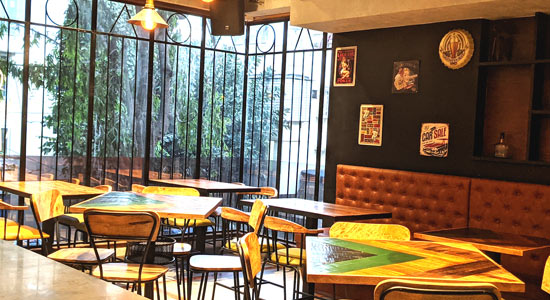
Also Read: Drifters Breweries launches 2 Growler Stations in Mumbai
“Several years ago when I began my tryst with the brewing industry, I had envisioned having Drifters Breweries on the beer map of India where the brand would be known for top quality craft brews. I am grateful to have set out on this journey with my wife Sheetal who defines positivity and we feel being a craft beer brand we should not limit ourselves only to growlers stations. We feel there's a string demand amongst our customers to have a sit down place where they can have our beers along with some good food. This is what led us to the opening of Tap Stations,” said Nayan Shah, Managing Director at Drifters Breweries.
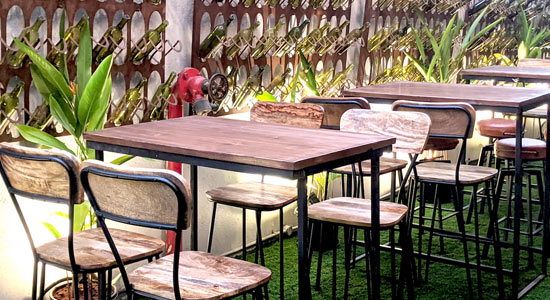
The new 2200 square feet outlet with rustic interiors has elements in the decor radiating energy that will help one unwind and take in the energy the place has to offer. The outlet has an indoor and outdoor section with 100 seats where the ground floor gives a vibe of a beer garden, and the first floor has comfortable interiors featuring a big beer tower with 12 taps and hand-painted brewing process in the entire double height staircase with different beer names painted artwork on a wall.
May Interest: Drifters launches growler station in Pune

The food menu includes an extravagant offering from diverse cuisines. Opt for the freshly curated beer bites like Jalapeno Pepper Cheese Garlic Bread, Sichuan Chilli Prawns, Harissa Hummus or classics such as Nachos, Cheese Garlic Bread, and Peri Peri Fries with Spicy Tangy Sauce. The menu includes appetizers such as Mushroom Crostini, Bil Lamhe Chicken, and more complimenting the beers.

Tata Starbucks Private Limited has opened its first drive-thru store in India at Dhillon Plaza, Ambala Chandigarh Expressway, Singhpura in Zirakpur.
The milestone demonstrates the company’s long-term commitment to the Indian market, where it now has 187 stores, and a vision of offering more ways for customers in India to enjoy the Starbucks Experience.
“Tata Starbucks has had an incredible journey in India, and we are proud to have achieved yet another milestone. The opening of our first drive-thru store showcases our commitment to evolving our brand and business in India and providing new and meaningful experiences to our customers,” said Navin Gurnaney, CEO, Tata Starbucks Pvt. Ltd.
The drive-thru format offers added convenience for customers who want to pick up their orders from their car, or travelers on the go.

Located next to the Chandigarh-Ambala highway, customers can also stop for a quick break to enjoy their Starbucks favourites in the café, with two levels of in-store seating, free Wi-Fi, and Starbucks merchandise available for purchase.
At the drive-thru window, a Starbucks partner will greet each customer and take their order, adding an element of warmth to the experience.
“This is all possible thanks to more than 2,000 Indian partners (employees) who proudly wear the green apron. Through their commitment and passion, Starbucks has laid a strong foundation as we expand to new cities across India year after year,” added Gurnaney.
To introduce the drive-thru in India and engage with customers, Tata Starbucks launched a digital marketing campaign with the tagline “Why wait for your brew, when you can drive-thru?”, an interesting illustration transforms the iconic Starbucks cup into a drive-thru store atop a highway. As a part of the launch offer, Starbucks customers can also enjoy 15% off on their drive thru order.
These discount coupons can be collected from the Chandigarh and Mohali Starbucks stores and can be redeemed at the drive thru for a limited period*.
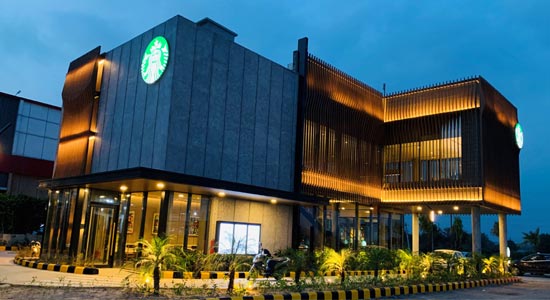
The drive-thru offers customers the same wide range of menu items available at other Starbucks locations, including the Starbucks® signature espresso beverages like Cappuccinos, Americanos, Lattes and all-time favourites such as Cafe Mocha, Java Chip Frappuccino, Signature Hot Chocolate and Caramel Macchiato. Customers can also savor the newest menu additions like the Honey Turmeric Latte and the classic international favorite Cortado along with a food menu comprising of Indian and International favourites. It will also offer a range of Teavana™ teas, including the Starbucks signature tea innovation – India Spice Majesty Blend for those who seek a modern and reimagined tea experience.

Years ago, who would have thought that chai being a household beverage can be sold in an organized restaurant business. However, with the support of investors, for Quick Service Restaurants (QSRs) selling chai has become possible and a profitable business.
India’s largest tea startup, Chai Point in India has its own success story. The company not only sells the beverage at its stores, but is also actively selling its packaged products both online and offline. The co-founder Amuleek Singh Bijral who is a Harvard graduate is expanding the business the way nobody did in India. It has around 150 stores across 8 cities, around 3000 dispensers across 16 cities and does over 300,000 deliveries per month in the country.
Meanwhile, Luckin Coffee, which is valued at around $2.9 billion, has grown exponentially in just three years by applying key profitable strategies like dependence on technology, focus on deliveries and low cost asset model. Similarly, Chai point, which is heavily dependent on technology for its operations, witnesses most of the revenues coming from its dispensers.
Tech-driven
Luckin Coffee in China relies heavily on technology to cut down on its costs. It does not operate on cash and all its payments are done through its Luckin app only. Similarly, Chai Point, being India’s largest organized Chai retailer has consistently stayed ahead of the curve in the country by using technology to solve the issues of accessibility and convenience. It uses its own cloud based platform called Shark, which helps in billing and tracking in all its outlets across the country. While for the corporate services, it uses BoxC.in, which provides IoT enabled automatic dispensers to the offices.
Also read: https://www.restaurantindia.in/article/luckin-coffee-to-enter-in-india-here-s-how-this-chinese-coffee-chain-is-making-big-in-china.13524
Vending machines
Earlier in January, Luckin observed the untapped growth in vending machine services and therefore announced its expansion through asset-light vending machines to cover a bigger market share in China. Chai point bets heavily on its internet based vending machines. The company observed that while vending machines are available widely in the country, there was no one who is selling ioT based dispensers. Currently, Chai Point sells about 6 lakh cups daily of which 4 lakh cups are contributed by the BoxC dispenser mechanism alone. BoxC contributes about 38-40% of Chai Point’s overall revenue. Revenues through delivery and its offline retail cafes are pegged at about 25% and 35% respectively, Economic Times reported.
Delivery based
Luckin Coffee stores are data-driven and involve minimal staff requirements. These stores are smaller in size (Like booths) and therefore can be started quickly. Luckin Coffee does not operate out of the café model and it only offers online and offline pickups and deliveries. With the emergence and growth of food aggregators in India, delivery based restaurants are looking to tap this opportunity, which in return helps them to get customers at lower costs. “A few years ago, the quantum of delivery sales from aggregators for Chai Point were negligible. Today delivery via aggregators accounts for 75% of the company’s total deliveries. The chain has 150 stores, of which 10% to 12% are dark kitchens, told Amuleek Singh Bijral, co-founder and CEO at Chai Point to Mint.

While restaurateurs are coming up with the concept of delivery only kitchens now-a-days, the very concept of cloud kitchen in India is still in a nascent stage. Recently at a Dark Kitchen conference held by Indian Restaurant Congress in Bangalore, speakers talked about the opportunities and challenges that lie in operating this model and what points need to be taken care of to make it successful. Here are the few takeaways from the conference.
Scaling the brand
“What I have seen is at the end of the day people want to eat and the question is how you meet that demand and how do you meet in a dynamic and flexible way. I think the very first thing is specializing in unique cuisines and then is how you scale it. Lastly how do you make it affordable and how are you going to deliver matters. It’s not about being a fancy chef, it’s about productizing it and scaling it, which is ruthlessly hard.”
Sam Subramaniam, CEO at Brand Capital
Go Local
“If I talk about specific cuisines that work for dark kitchens then Ghar ka khana (Home-made food) works and Indian food always works well. It also depends upon the region you are operating in. I would say that the regional food, ubiquitous Punjabi food (which is generally termed as Indian food) in the menu really works well for cloud kitchens. The south East Asian flavours have also proven to be successful. Off late, there has been a trend going on which is because a lot of people are switching to health based food. Dishes like Sushis, Dimsums have become very popular when it comes to delivery only kitchens.”
Chef Vineet Manocha Senior Vice President - Culinary at Lite Bite Foods Pvt Ltd
Taste is first and foremost
“Dark kitchens really need to focus on the taste. What you cannot achieve with the presentation, you have to achieve that with the taste because that is what makes it and breaks it for you. Secondly, it is very important to have a right kind of packaging so that the food can be maintained in a right temperature and can be delivered the way it is supposed to be. For example, the cylindrical shape of sushi must not be tampered and it must not be squashed.”
Sumant Vikas, General Manager- Culinary Operations and Innovation at Cremica Food Industries Limited
Unique offering
The question that a dark kitchen operator should ask herself/himself is if she/he doing something different for the customers. If you are making the same aalu poori at the front end and took it to the back end and started delivering it, then I think you will soon become the part of graveyard. You will have to ask that honest question to yourself that ‘Am I doing something different or Am I doing something better?’ if you have not innovated with the food in India, which is a country of entrepreneurs then you are gone.”
Aditya Somani, Private Equity Investment Professional
Consistency is the key
“I was talking to a one of our clients who is operating a large scale dark kitchen business and they were looking for a pasta sauce. Now a traditional pasta sauce would have some percentage of white sauce in it which is made out of flour. So, if there is maida flour then there would be starch and my client wanted a pasta sauce without starch in it because the pasta will be consumed after 40 minutes of preparation so the sauce should be able to hold its original texture for the next 40 minutes. Here we are trying to go away from the traditional ingredients for cooking. So, now we are developing a pasta sauce which is free of starch. For home-made food also consistency is the key. There should be no inconsistency regarding the dishes’ taste.”
Sumant Vikas, General Manager- Culinary Operations and Innovation at Cremica Food Industries Limited

In an e-mail conversation with Restaurant India, Ravi Gupta CEO Nukkadwala talked about his cloud kitchen brands, what challenges he faces in operating them and how the additions of these new brands will help leveraging the existing capacity without increasing any additional cost.
Edited excerpts;
With the launch of two new brands in the cloud kitchen model, how are you operating it? Is it in a centralized kitchen format or multiple kitchen formats?
We have a centralized kitchen in Gurgaon with modern equipments. It has the existing capacity to service 1,00,000 plus monthly orders and presently we are doing approx 20,000 monthly orders for Nukkadwala. The whole idea of coming out with multi-brand was twofold, one that we utilize the centralized kitchen capacity for initial processing or cooking for all three brands, which are Dum-Nukk Biryani, Nukkadwala and the burger brand where final processing happens at the existing seven outlets. Secondly, since the two new brands are exclusively marketed by the online delivery platform partner which will enable us to have a significant visibility and sales push without increasing any fixed cost. This will leverage our outlet capacity to deliver these 3 brands and ultimately adds significantly to the bottom line as well.
Currently, how are you delivering your product? Do you have your own delivery platform or you have partnered with some delivery platform?
For Nukkadwala, the Indian Street Food cuisine, we are using Swiggy and Zomato for delivery. For outlets where we are facing riders availability issues, we have our own riders and an internal team taking orders. For the new brands, we have entered into an exclusive tie-up with the largest online delivery platform as delivery only brands, where we will supply the food from our outlets and platform will market to generate the orders and deliver it to the customer.
How have you designed your menu? How is it different from your physical restaurants?
If you are asking about the new brands, they are completely different offering than what we offer to our dine-in customers under Nukkadwala brand, the Indian street food menu comprises of north, south, west and east India Street food specialties serving all 4 meals, Breakfast, Lunch, Hi-Tea, and Dinner. Whereas under our biryani brand ‘Dum-Nukk’, which has already gone live on January 1, 2020, we have a full range of Dum biryani both veg and non-veg with authentic flavors from the street of Hyderabad, along with that we have given options to the customers for variety of range of starters, few meals with bread and a choice of dessert to complete the offering. We are keeping biryanis and burgers as delivery-only brands.
Why did you think of foraying into this model? Do you think in the coming years, this model will take over the physical restaurants in terms of making a profit?
This was a natural expansion mode that struck the board and senior management, as I had mentioned earlier these new brands will help us leverage our existing capacity without increasing any additional cost or maybe a nominal cost resulting in a significant increase in revenue and margins. Also, it will give us a bigger footprint to compete or have an edge over the competition. We are a food heavy brand with a clear differentiated taste, adding two more brands to the armor will give us an exponential growth path.
Whether the delivery-only model will take over physical restaurants in terms of making a profit? As a casual dining chain (CD-R) we believe that a blend of the physical restaurant with a Dine in brand, complemented by multiple delivery brands and delivery only kitchens is the way forward. The dine-in brand helps in getting visibility and is very important for customer experience and thereby drive delivery from the physical outlet. Whereas multiple brands delivered from the outlet brings additional revenue per square feet without any additional costs and boost the bottom line. There is a further advantage to complement the physical outlet with cloud kitchens set up. The low CAPEX and OPEX increases the reach of delivery for multiple brands giving a further boost to the margins.
What are the opportunities you see in this model? How are you planning to expand it?
We have a threefold strategy to expand. We are planning an asset free expansion from our current outlets with these two new delivery-only brands. We have already signed up one new outlet in south Delhi in a great location with a daily footfall of 7000 to 8000. We are planning an asset light expansion by adding 3 to 4 delivery only kitchen per outlet, to increase the delivery reach of outlets from 5kms to 15kms distance with all 3 brands.
What are the challenges in running this model?
We see two key challenges, with multiple delivery brands and comprehensive offering, one has to keep a close tap on the potential wastage, which ultimately impacts the food cost and thus margins. This will be mitigated by putting strong internal controls and the use of technology to ensure it stays within acceptable limits. Secondly, for delivery only brands there is complete dependence on how well it will be marketed by the delivery platform and how will the algorithm ensure the brands stay on the top. Since the platform is co-investing with us on marketing, we are very confident of its success.
What are your expectations with these new brands?
We believe that delivery based sales will increase to 40% of the total sales value for us in the next 18-24 months from the current 20%.

Jayant Gandhi started his journey in the world of food started with Jungle Jamboree in Gold Souk Gurgaon. Little did he know that it will receive such love from the people that within no time, he will be able to take his first project to locations like CP, Rajouri Garden, Noida & Sector 29 Gurgaon. “Gaining the trust and confidence of our guests, I opened the first branch of Mellow Garden, my second project in South City-2, Gurgaon, which was later extended to Rajouri Garden,” shares Gandhi who is now planning to expand it even further.
Tell us more about your projects.
Just Behind U is a modern haunted theme lounge & bar in Rajouri Garden is doing well, whereas House Of Punjab, also located in Rajouri is doing supremely great, known for its authentic Punjabi cuisine.
When did you ventured into designing of restaurant?
We have been designing restaurants for over 18 years and we've absolutely loved the journey so far. Almost all our designs were well acknowledged and appreciated, we thought about building something of our own and that's how six years back, I started planning my own restaurant and the rest is all there for you all to see.
Why Jungle as theme?
Well, I would definitely say that all these years into creating theme projects took a lot of research and it helped me final down Jungle as the theme for my first restaurant. My idea behind this theme was to lure in both adults and kids equally. A theme like this promotes and encourage family get-togethers and that is exactly what Jungle Jamboree is doing.
Tell us about menu designing.
We are a multi-cuisine restaurant, but we specifically focus on our Indian & Chinese menu because both these cuisines are highly liked and enjoyed by North Indians.
Which job you enjoy the most, restaurateur or designer?
I like to believe that I am able to create a balance between both my jobs, but since I started with designing, it will always stay close to my heart. Saying that I don't mean that running a restaurant is a dull task. It is rather much more interesting and catering to large volumes of people every single night, keeps me on my toes.
Five factors you consider while designing your projects.
The 5 most important factors that I always keep in mind while designing any of my projects are:
-it should be a family orientated place where kids can also enjoy
- it should have lift/staircase/ramp provisions for old age & kids
- it should have comfortable seating arrangements
- it should have a personal dining area for large groups
- it should be a proper thematic place where interiors will be correlated with the theme perfectly
Tell us about your expansion plans.
Currently, we have 4 successfully running ventures, namely, Mellow Garden, Just Behind U, House of Punjab and Jungle Jamboree. We are planning to expand Mellow Garden with branches all over India, and also planning to open up Mellow Cafe & Mellow Express.
What are the factors you look after while selecting locations?
The conditions that I consider while picking up a location are:
- easily approachable for all
- good footfall
- have facilities like lift, parking etc.
What trend you see happening in India?
Casual Dining is a hit in India because, with the burgeoning consumer demands and the hunger for uniqueness, gastro pubs and lounges have become the go to places for youngsters and families alike. These places not only offer delicious and exclusive food and drinks, but also a comforting and vibrant ambience for everyone to have a memorable experience. Going forward, I think that comfort food, good music, innovative concepts or themes and creative marketing strategies will play vital roles in attracting customers in this ever growing industry.

Shraddha Bhansali always wanted to own a restaurant of hers ever since she was 16. “My family was into business but nobody was into the service industry with prior experience,’ shared Bhansali who was always fascinated by the restaurant fraternity. It was then; she went to Boston University and studied hospitality and business management from there. “After I graduated, I came back to Mumbai and worked with few 5 Star hotels including The Taj Hotel, St. Regis when it was The Palladium Hotel,” remembers the 25 year old happening restaurateur who is all set to promote the clean and green eating from her first maiden venture – Candy & Green at Breach Candy in Mumbai. Read what she has to say on her journey in the world of food:
Why Candy & Green?
I was always a vegetarian myself and growing up when I used to visit a restaurant there were restaurants like Shiv Sagar and Kailash Parbat in the option that has lots of spices and butter and ghee options in the menu. There were no good restaurants in the line of casual dining or fine dining segment. Being a Gujarati we do not eat lots of masala and cheese etc and that’s where I couldn’t connect with these restaurants when eat out. Also, when I was studying at Boston there was this whole new trend of veganism. I am not a vegan myself. But one thing I always loved about these restaurants was they were very ingredient centric. The technique it was cooked in was very impressive. Also, chef used to have lots of care about their ingredient and food. That’s why I opened Candy & Green that completely focuses on ingredient-centric food.
Giving Birth to the Farm to Fork Concept
We have a farm on our rooftop of around 750 sqft wherein we grew our own produce. It came as a need to control the quality of what we serve on the restaurant menu. We grew lots of greens by ourselves. The farm is on the top and hence we get the fresh, organic produce with zero carbon that also help us to be sustainable. We cut the ingredients according to the need and don’t over cut and waste them.
Why Sustainability is a big factor to Talk?
In our country we have so many people and such limited resources. If we keep abusing them there would come a time when the next generation would not have access to these resources. That’s where the need to sustainability pertains. I am not thinking of Candy & Green now but it as a restaurant from ten years down the line. And, if we do not do it in sustainable manner I don’t think it would be possible. Not just restaurant but people in general. If we do not give back to the environment now it will be little late. Entrepreneurs are focusing on sustainability as top priority.
The Debate is Still on About ‘Healthy’ Food
Healthy is more debated food in the world. For every person definition of healthy is different. Healthy is very subjective to one person to another and what is healthy clearly depends on a diet. What we believe at Candy & Green is that we don’t stick to anything rather we focus on the concept of clean eating that means that all our ingredients are sourced consciously. I personally believe in concept of clean eating and India as a country has so much variety in terms of produce and when you have got so much of these how can it be boring, you just need right person to cook it.
Spreading the Colour of ‘Joy’
Nutritionist also says that you should eat rainbow that means you should bring a lot of colour on the menu that has all the important nutrients including; vitamins, calciums, iron etc. And, that was something we had done at Candy & Green. My goal wasn’t to bring lots of colour on the plate instead huge item and produce available in my menu. We use lots of vegetables and fruits. Our menu is seasonal and we change it every season based on what is available in the market and what we grow ourselves. Seasonality is one of the main determinants of our menu planning. We also like to put a good ratio of things that are experimental which people have might not tried before and things that are more well known to people but we cook it in a way where we highlight clean and natural eating. We believe in each dish having one main ingredient.
Catering to a Wide range of Customers
A lot of our regulars are people who live in the Breach candy area. People who come from far off are people who are very conscious about what are they eating and what goes into their body. They are those customers who want to maintain good, quality and clean lifestyle.
Pairing Food Right with Wine
We have our own brand of wine and are very focused on the quality of it. We get get our wine from Winery in Nasik. They are blended exclusively for us. I don’t serve those Indian wines that come with a price tag. Instead, I serve my in-house wines that are very premium in quality and quality is very important for us. Since, we have got the luxury of blending our wine we are not only pairing food to the wine but wine to the food.
Flying High
My goal is to make clean eating accessible to everyone. And, hence I am planning to launch a new brand that will be called XYZ by Candy & Green and will be a chain of more affordable healthy eating joint with candy & green branding on it.

India, today, creates 67 million metric tonnes of food waste per annum which is valued at INR 92,000 crore, growing at 8-10% year on year. Jsamey Biotech Pvt. Ltd, the brainchild of Amey Marathe, was formed with the intention to curb the food waste generated from the restaurants in India.
Amey Marathe has worked with the restaurant industry as a chef for 14 years. Through his culinary journey, he saw tonnes of food being dumped in garbage bins, daily. Every time he saw food in the garbage bins, his heart sank.
Speaking to Restaurant India, Amey Marathe, founder of JSamey Biotech Pvt. Ltd., tells why and how the restaurants across the country can help minimize the food wastage problem.
Introducing Farm to Farm Concept
I have been in the industry as a chef since 2005. Every day, I would see a lot of food being thrown in the bins; all these came either from pre-preparation or shelf life of the items that were over and 50% of them came from the tables or the buffet. Farmers put a lot of efforts in growing produce. Even chefs do a lot of hard work in making a cuisine. And when you see all these things go in the trash, your heart aches. Same happened with me.

Amey Marathe, founder of Jsamey Biotech Pvt. Ltd.
10-12% of the garbage generated in India is food waste. Delhi, alone, has 650 acres of prime land meant only for dumping the garbage. Since a long time, I wanted to do something for the industry.
Management of waste is a major issue for any restaurant. Unlike 5 or 4-star hotel restaurants, standalone doesn’t have specific garbage-controlled rooms. At the end of the day, the food waste is picked up by the municipality and gets dumped in the land field.
Presently, people know only about composting, the conventional method. Every good hotel has a composting machine in their premise; at hotels, it’s mandatory to keep composting machines to get the certification. Any 5-star property with 100 rooms creates at least 700-800 kilos of waste. The machines would have the capacity to process 100-200 kilos per day. The problem with composting is - because of the process, gases like carbon dioxide, methane, H2S are released in the atmosphere. Apart from the garbage, another problem we face in the country is air and soil pollution.
If we do not deal with such things now, it will spread more.
Already 11 cities in India are ranked among the most polluted city in the world.
That’s why we started JS Amey.
We have seen trends like farm to fork or farm to plate; Jsamey is the Farm to Farm concept.
We collect the food waste from various hotels and restaurants and convert it into nutritious organic fertiliser through the fermentation process.
I thought if we go through the bio-methanation process, though it’s a conventional process, no new technology is involved yet additionally, the biogas will be generated.
Also read: Nestle India Rolls Out A New Scheme To Curb Plastic Waste
Challenges with Restaurants’ Food Waste
The food wastes we get from restaurants are indigestive. Our cooking involves oil, grease and spices. The challenge was whether we could use this food waste to convert it into organic manure and gas. We got incubated at a-Idea (Association for Innovation Development of Entrepreneurship in Agriculture) Hyderabad and agri-biotech foundation. We did extensive research on microbial consortia. We have seen the success of being able to treat this food waste properly. Now, we have our own consortia; we are harnessing all these gases and we are also producing organic manure.
Executing the Concept
Till Feb-March, this year, we were in our pilot phase. Since it was the first phase, we had processed around 25 kilos of waste per day.
We, recently, got a grant from the Government. By June, we will have a plant where we can process around 1-tonne food waste per day.
We are starting with Hyderabad, which produces around 450-500 tonnes of food waste per day. By the year end, we will process 10 tonnes per day i.e., 300 tonnes a month and by 2022, we aim to process around 6,000 metric tonnes per day in at least 8-10 cities across India. By next year, possibly, we will be in 3-4 cities.
The gas we generate, through the bio-methanation process, will be bottled, enriched and sold back as compressed biogas. This will be almost 25% cheaper than the regular LPG which is approved by the government. The manure will be sold to the farmers at a subsidized rate; it’s complete organic manure. It also helps the soil retain its fertility. And you have no limitations of usage. Because it’s the same food that is grown at the farm goes back to the farm.
The Compressed Bio Gas will be sold at subsidized 48 INR per kg and organic manure at 8 INR per kg.
Collecting the Food Waste from Restaurants
We will have our own logistics. Mostly, restaurants have to keep the food waste to be collected the next day, till noons, generally. We’ll have a fleet of our own or we’ll tie up with municipalities where we’ll connect this waste in the night itself by 12.30 or 1 am. The hotels and restaurants don’t have to keep the stinking food waste at their place. For us, it becomes better as we’ll take it as early before it starts rotting.
The challenges also lie in how open the other city’s municipalities will be to collaborate with us. With the coming up of the Swachh Bharat campaign, I see a lot of movements happening within the cities. We got a good response from Hyderabad municipalities. Our concept is Farm to Farm.
So far, we have signed up with 10 restaurants; I cannot disclose the names at this moment.
Benefits for Restaurants
Ease of operations and no stress on storing garbage is one of the major benefits for a restaurant. We are also in the process to develop a tech-based system wherein restaurants can claim carbon credits.

Zorambo is a first of its kind ‘Born in India’ Caftaurant that serves some great coffee, tea, shakes, awesome variety of Indian snacks, mouth-watering desserts and provide a pleasant experience for the customers to come, relax and enjoy the Zorambo experience. The premium-yet-pocket-friendly one-stop-shop with sufficient food and beverage options to substitute for both - a coffee house and a restaurant. Zorambo has curated co-working space wherein a customer can simply plug his laptop and plan meetings outside of his workspace. Three outlets are open in the Millennium City, Gurugram- Central Plaza in Golf Course Road, D Block Shopping Plaza in South City 2 and JMD Megapolis in Sohna Road.
Expansion Plans
Zorambo, the world’s largest Caftaurant chain was formally launched through its first premium outlet at Central Plaza, Golf Course Road, Gurugram. The company is pursuing an aggressive growth plan, which will see an expansion scaling to 200 outlets in India, the UK, Ireland, Germany and Singapore over the next 48 months and plans to hit the 5000 mark by the end of 2030 via distribution led model.
Also Read: Gourmet Pizzas in Just 5 Minutes!
Sunil Aswal, Founder of Zorambo says, “We are excited to launch Zorambo through this unique concept of caftaurant which is scalable and helps us secure a profitable growth path despite the capital intensive nature of the F&B industry. Through Zorambo, we aim to fill the huge gap between premium cafés and fine-dining restaurants while enhancing the consumer experience. Each of our outlets will offer a curated menu of Indian fusion food options along with a wide array of beverage options and comfortable ambience with creative and localized interiors. The compelling value proposition of Zorambo is aimed at a higher share of wallet amongst the discretionary spends of consumers.”
Zorambo’s premium outlets will be strategically located in Tier 1 cities of India across corporate houses, residential complexes and universities and Indian dominated catchments abroad along with busy zones like bus terminals, tube stations, stadiums, entertainment zones and many more.
The Caftaurant format within the global food and beverage services industry offers the potential to capture one of the highest volumes of consumers spends and evolve into the fastest growing concept.
The Caftaurant Concept
The Caftaurant concept addresses some of the legacy ‘pain points’ like lack of Indian fusion food options at cafes and sufficient beverage options at restaurants. Zorambo will offer premium experience yet pocket-friendly and lip-smacking Indian fusion food options that will appeal to the affluent masses with sufficient food and beverage options to substitute a coffee house and a restaurant.
Also Read: Building a Smoothie Empire in India
Chetan Bhagat, the best-selling author graced the launch event as the chief guest along with other eminent personalities like Anurag Bhushan, Joint Secretary, Ministry of External Affairs, Dr Vivek Mansingh, General Partner Your Nest Venture Capital and Chairman AxisCades and Ramesh Awtaney, Founder and Chairman, ISON Group.
Zorambo is aiming at consumers who want to discover Indian street food gastronomy with a twist of fusion in the convenience of a curated experience which current cafes and restaurants are limited to deliver.
Expressing his views during the launch of the Gurugram outlet, best-selling author, Chetan Bhagat said, “I’m glad to be a part of the Zorambo’s journey. Young India wants a place, which offers a premium experience but is pocket-friendly at the same time. Zorambo offers the best Indian fusion food along with some awesome coffee and beverage options along with a curated co-working space, which is ideal for students, freelancers, working professionals, writers and for all those who love to work outside their workplace and enjoys a premium and the most comfortable ambience.”

It’s said that adversities don’t make a person, they reveal him/her and what challenging times revealed about Manvi Chaudhary, a Gurgaon-based entrepreneur. At a very young age of 24 year she got the courage to venture into the cut-throat competition of F&B world and then immediately finding out that one official ruling has turned the tide against all her business plans. While most will lose hope, Manvi, immediately went back to the drawing board and got cracking. Exactly, a month and four days after the Supreme Court ruling that banned the sale of alcohol within 500 meters of state and national highways, she reopened Pier 38 –Cocktail Bar & Kitchen, her brainchild and this time, all set to soar. She is also the recipient of Young Achievers Award at the 6th World Women Leadership Awards. Read, what she has to say on her nightlife venture:
What was the idea behind Pier 38, the Indo Arabic Kitchen & Cocktail Bar?
The idea was to bring to India what I had experienced globally. The idea was to make a very casual, chilled out space that had the right vibe, great music, with very good quality cocktails and food, at a reasonable price, available to the millennial.
You bagged the Young Achievers Award at the 6th World Women Leadership Awards. What was the inspiration entering the nightlife business?
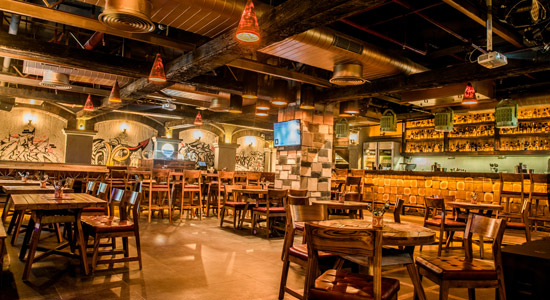
It was just my true calling. I felt this is what I had to do; the paucity of such infrastructure, the fact that I wanted to introduce so many people to new concepts inspired me.
There is a myth that nightlife business is not about women. How do you overcome these challenges?
I mean, it’s a challenge, but over time you develop your systems in a way that everything falls into place and becomes smooth process.
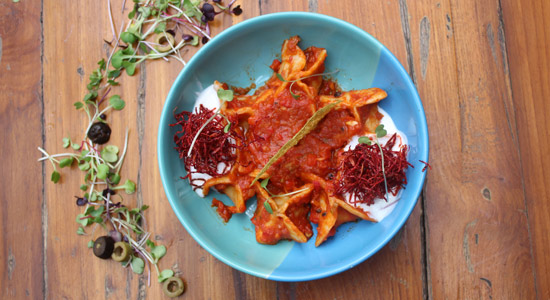
What is unique about Pier 38 as Gurgaon has become a hub for bar and restaurants?
Everything about us is unique. It’s one of the few places where almost the entire upper management is women. This reflects in the way we run our restaurant. You can see the attention to details, sensitivity in our approach to everything & a really kick ass vibe!
In addition our expertise is in handcrafted cocktails as well as Arabic & Indian food, presented in a very chic way.
How many varieties of cocktail do you serve? Which is ordered the most?
At Pier 38, we serve over 50 varieties of cocktails. Some of them are secrets that we serve only to our regular guests; some are even designed for specific guests that we have. Smokey Bourbon Bolt, a Pier 38 signature is one of the top sellers.
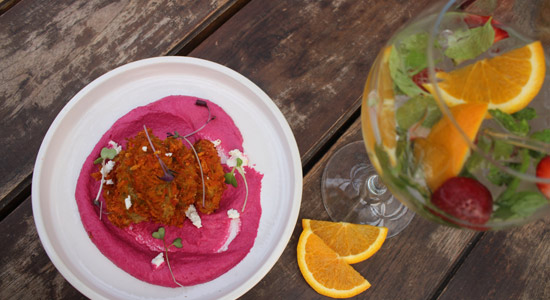
What is the average footfall at Pier and average ticket size?
We have over 200 people visiting us daily.
Do you create a lively ambience at Pier?
I don’t think it’s only all about the ambience. But yes, it’s a very important factor. We make sure our music is in sync to the crowds’ mood; lighting plays a very important role in setting the ambience right, so we focus on that as well. In addition, we try to keep our sitting arrangements in a way that privacy is maintained of the guest, and yet they don’t feel claustrophobic. I also feel that the air conditioning is a very important and often ignored part of ambience.
What are the different types of cuisine served?
We primarily do Arabic and Indian food, although we have a wide variety of bar snacks from different cuisines.
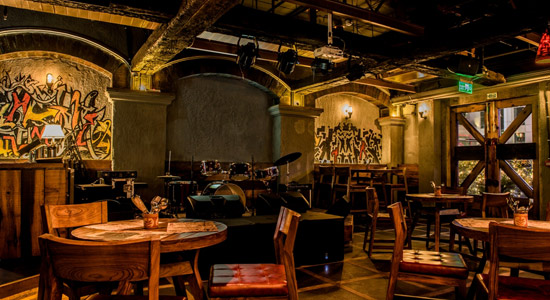
If not a restaurateur, where can we see you doing wonders?
Had I not been in this Industry, I would have probably been in the Events’ Industry, which I really enjoy and I’m also good at organizing events. I like paying attention to detail and planning in advance.

There are lots of challenges to be faced when you come out of a hotel. When you start a restaurant business on your own, you have to manage everything. Solving challenges is interesting. Here are a few things the owners of a restaurant startup must know before they start their business in Hyderabad.
Patience is a Must
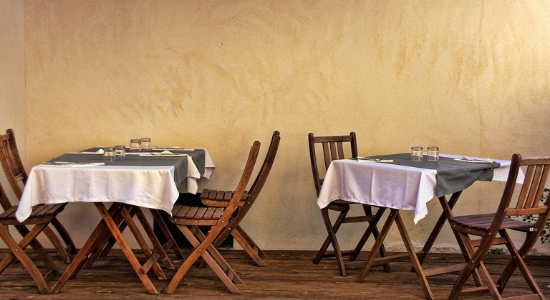
A restaurant is such a business where you put a lot of money and cannot expect the returns to come immediately. People have to have the patience to deal with it, and they should have the capacity to run the restaurant for the next 6-8 months from the pocket. You have to wait for a long time to get a return. It’s not easy like other businesses.
Also Read: 10-Step Checklist to Open a Bistro in Mumbai
Dependency on Manpower
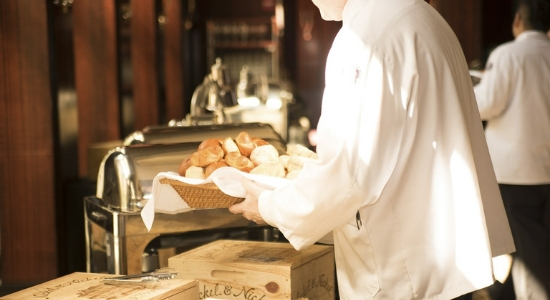
Most of the people depend on the chefs or other people like service staff at their restaurants. There are many restaurateurs who are unable to manage the cost or staff; they sometimes feel that their restaurant is about to shut and are willing to seek help. Getting good manpower is becoming a challenge. You need to trust the service staff, even if you aren’t at the restaurant. Many times, new and especially low-budget restaurants mix up with the roles of the staff, which is okay. But the challenge lies in hiring the best and trustworthy.
Rentals
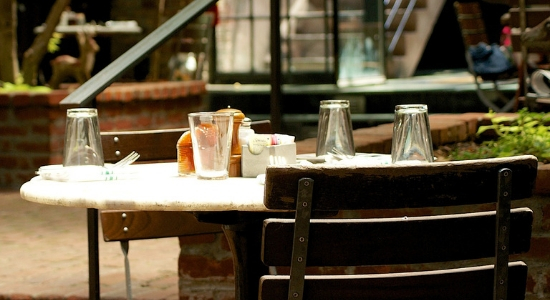
Rental aspects are important too. When people put things together they only look for the costs involved in building up the restaurant. They forget salary wages are around 24-26% of the revenue of the restaurant. The rental, sometimes, can go up to 20% also; all these have to be counted. Your pocket has to be deep enough to bear all the expenses.
Location
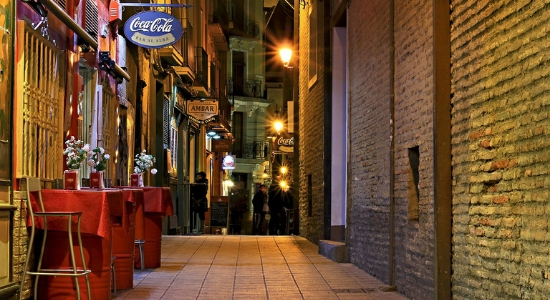
A location should be a prime concern. It is not that people do not travel for food. I have instances where people travel 25 km and call us while on the way that “there is traffic and we might get late”. I personally serve them when my staff leaves for the day. You need to be very careful while choosing a location keeping an eye on the footfall available in that area - is it a business estate or a residential.
Also Read: Restaurateur Shivam Sehgal Sees An Untapped Business Opportunity In Delhi’s Dwarka
All these things you need to keep in mind.
Chef Chalapathi Rao, fondly known as Chef Challu, is one of the finest chefs serving South Indian cuisines in Hyderabad and abroad. Click to Read Full Interview
As told to Sara Khan

Krishna Gupta is a young entrepreneur and has a big role to play throughout 1441 Pizzeria's journey. In three years, the brand has grown and gained visibility in three different cities i.e., Mumbai, Pune and Bengaluru. 1441 Pizzeria was established to bring the authenticity of Italian wood-fired pizza to India.
In an interview with Restaurant India, Managing Director of 1441 Pizzeria, Krishna Gupta says he is considering expanding the pizza brand with the franchise model.
‘It’s the flour that makes a pizza taste better’

I found out the importance of using the right kind of flour - without that you just cannot make the best pizza dough. We tried 5 different flours, all locally produced with a French method, some Swiss, some Italian, after which we finally decided on the one we use currently. The difference was immediately notable, securing my belief that the flour makes the pizza.
I have also noticed that many Pizzerias in Europe use the same flour as we do - It is very obvious in the taste, texture and authenticity of the pizza.
Developing a Right Training Model Was a Challenge
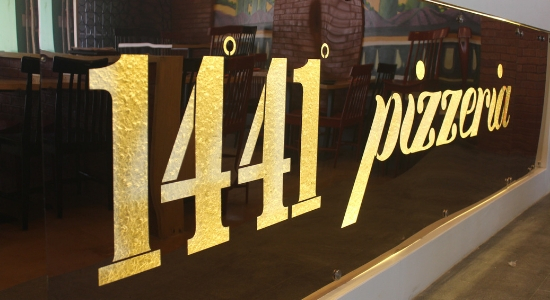
I think the biggest hurdle was product consistency and training to get it right. We had created a model to ensure consistency at all our outlets by obtaining our raw materials from a central kitchen. With everything coming from one source, we didn’t have to worry about the taste, hygiene levels and other factors at all 10 different outlets but could put all our focus on just the main kitchen.
Also Read: 100% Baked! Delhi Gets First Build-Your-Own Pizza Outlet
Training was essential but we overcame that by giving customers the opportunity to make their own pizzas with ease, thus, eliminating the need for a professionally-skilled chef. The current training model allows our staff to learn the job in just a weeks’ time. After that, it’s all practice.
Key Accomplishments in Last Three Years
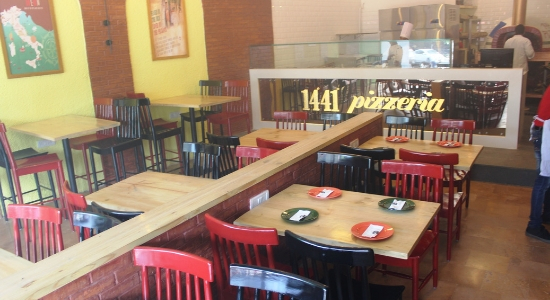
I think the rate at which we have grown is our biggest achievement. We started out with two outlets and now there are 11 outlets - not just in Mumbai but in Pune and Bengaluru too!
We also hold a consistent 4.2 and above rating on Zomato for each outlet ever since we first started. This shows that we are able to keep up well with the standards of exceptional pizza making.
Disrupting the Industry Segment with 1441 Pizzeria
The industry is mainly divided into three segments - QSRs like McDonalds and Dominos, Casual Restaurants and Fine Dine restaurants.
People go to QSR chains for low-cost options and prompt service. They visit Casual and Fine Dine for the high-quality food and service that they provide.
With the entry of 1441 Pizzeria into the industry, we introduced a new segment - Fast Casual. We not only provide prompt and efficient service but also high-quality pizzas. We offer one of the best pizzas in the market - Italian flour, wood-fired oven, a chance to make your own pizza, unlimited toppings, and all of this at a very reasonable price of around 350-400 INR per customer. For dine-in customers, gourmet-style pizzas are at their table in just 5 minutes! I strongly believe the fast-casual segment is going to be the next big thing in the food industry.
Also read: Indian Pizza Market Offers A Mouth Watering Opportunity For Investors
Pizza Market in India
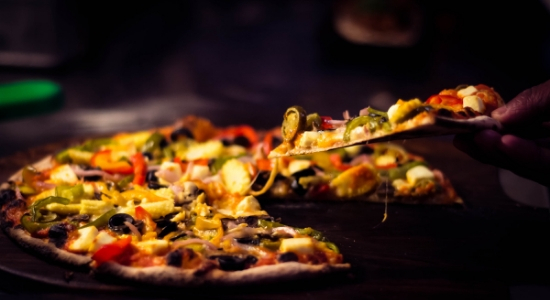
According to me, the pizza market is second only to the bar market in India. Pizza is the most consistent food that people prefer to order on any occasion be it a get-together, birthday party, sporting event, after party food. The difference, however, lies in the fact that until about 7- 10 years ago, nobody ever expected to get pizzas of exceptional quality because the larger market share was always taken by QSRs. Recently, this has changed - consumers are now more particular about the taste and quality of the pizzas that they eat. Unfortunately, India is still a price sensitive market which makes it difficult to reach a large segment, hence, the introduction of fast casual.
Unique Marketing Strategies of 1441 Pizzeria
1441 Pizzeria is a unique brand that offers services that are distinct from the usual and believe in letting our product do the talking. Our focus is on getting people through our front door. For this, we use experimental marketing and a high social media presence after which it is our quality of service and products that lead our customers to spread the word.
We usually try to sell on our unique incomparable features, which are:
- Unrestricted unlimited toppings
- Specially-customized pizza flour taking into consideration climate and concept, all the way from Italy
- The concept of Make Your Own Pizza with an open kitchen
- Unlimited Coca Cola
To get repeat customers one should maintain – quality, service and offerings.
Revenue Model
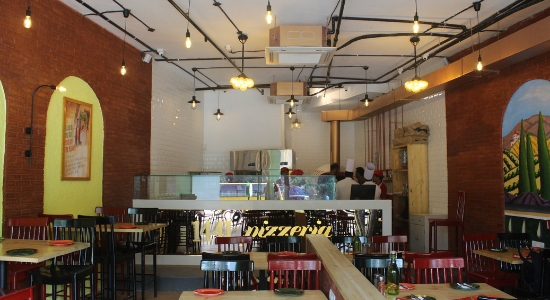
As of now, it is 75% dine-in customers and 25% delivery. While we are trying to increase the percentage, we also need to make sure our quality doesn’t suffer - our pizzas are the best when had hot and fresh out of the oven.
Expansion Plans in the next two years
Through franchising and corporate-owned stores, we plan to open 20 Pizzerias in five cities in the next two years.
Must Read: First-Time Restaurateur? Avoid These Mistakes | Article by Krishna Gupta

With growing awareness about health foods and ingredients, people are more focusing on getting the authentic materials. Matcha Culture, was started a years ago that imports high quality Japanese Matcha from Kyoto’s farmlands and caters to the Indian market. The whole idea was conceptualized during Rajshree’s(the founder) exploratory travels when she noticed a frenzy of health enthusiasts adopting the- ‘matcha way of life’. Curious about the product, she traced its roots back to Japan and the rich Japanese culture. Having understood the goodness that this nutrient-packed superfood has to offer, she felt that it should to be consumed by Indians- a country where the fast-paced lives lead by our generation calls for a well-deserved daily detox. Riding on the philosophy that good health is paramount, Matcha Culture was born. Excerpts from the interview:
Venturing into the Food Biz
Although I have previously explored the investment banking and the travel industry, the fitness and food industry has always been something very enticing to me. Hence, when the idea for Matcha Culture came by, it felt like my true calling.
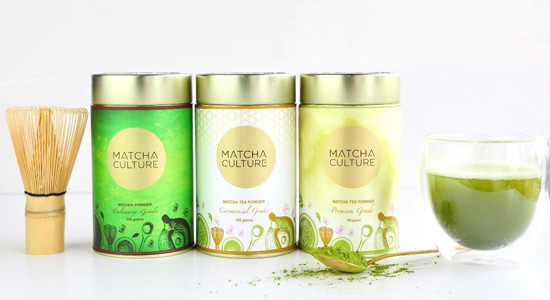
Riding on Health Factor
Matcha has several health benefits- it is high in antioxidants and packed with various nutrients. It aids in weight loss by increasing the body’s metabolism, helps fight cancer, has anti-ageing properties, gives the body an energy boost due to its caffeine levels, to name a few.
Matcha and green tea are made from the leaves of the same plant- Camellia Sinensis. What sets matcha apart is the intricate process of growing and preparing it, and therefore its unmatchable nutritional benefits. Studies show that 1 cup of matcha is nutritionally equivalent to 10 cups of regular green tea. Given that India has a huge customer base of green tea consumers, the healthier alternative to green tea will soon become the next step towards a more health-conscious society.
Catering to a Wide Customer Base
Our customer base is predominantly more B2C. However, we are currently in talks about partnering with several cafes and niche restaurants to become their supplier of matcha tea.
What is the price range?
Our product price range starts from Rs.850 and goes upto Rs.2500 for our Matcha Kits.
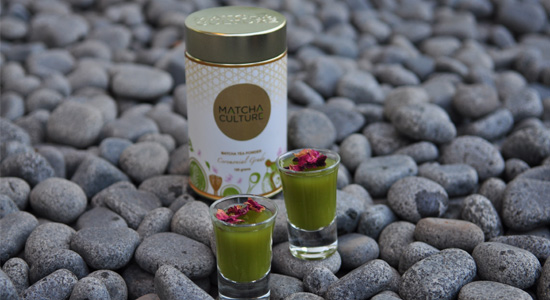
A favourite among All!
While some teas are not ideal to be consumed by adolescents, matcha tea is. It works wonders for people across all age groups. However, men and women in the age bracket of 18-45 years, who love to experiment, tend to have a growing affinity towards the product. The product seems to be more popular amidst metropolitan cities where customers are more willing to spend on a premium quality tea without putting a price on their health, and where restaurants use matcha as a new and exciting flavor to experiment various sweet and savory recipes. The product is also popular amongst various nutritionists.
What trend do you see happening in beverages going forward?
Since the tastebuds of the new-age consumers has evolved from one loaded with sweet flavor profiles, the dash of bitter and vegetal flavor profile that matcha adds to beverages is being increasingly appreciated. Consumers are growing an affinity towards the bittersweet symphony that matcha brings to beverages.
Flying High
Given the versatile nature of the product, it can be used with water, milk, and just as an added supplement to various food and beverage recipes and can also be used as a natural 100% plant based pre-work out supplement given the caffeine content, metabolism boosting and calorie burning properties. Thus, exploring new markets helps us channel the creativity that this product has to offer. Hence, given our online presence, we are contemplating about creating an offline presence in the form of cafes in the future.

Partnering with her husband in business, Sheetal Shah defines strength with a positive vision of success and innovation. Managing the BKC outlet of Drifters Breweries, she is a woman who is fascinated by the world of craft beers and the bubbles in each brew. The daily operations side of the brew bar is constant learning for Sheetal, who hopes to open other craft beer serving outlets in major cities in Maharashtra. Excitement and vigour are her cornerstones as she appreciates how locals today love to experiment with different types of craft beers.
In an interview with Restaurant India, Sheetal Shah, Managing Director at Drifters Tap Station, says Mumbai is a growing market for microbrewery business.
About Drifters Tap Station
Drifters Tap Station was founded by me and my husband Nayan Shah. Our company was born out of the need to bring Eastern European handcrafted beers to the city. Roaming in the streets of many western countries like Europe, the USA, Canada and Australia in search of the best beer led us to the doorsteps of Honza Kocka, our Brew Master, from Prague. Our journey led us to name the venture Drifters Tap Station which encapsulates everything the name stands for and more.
Role as the Managing Director
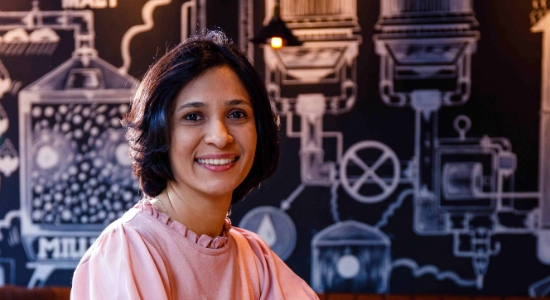
My role as the Managing Director of the company is to manage operations of retail outlets that come under the parent company - Drifters Breweries. Drifters Tap Station is the first venue opened recently in BKC and my role there involves managing all operations, maintaining the food and service quality and ensuring that all patrons who visit the venue leave with unique memories and come back for the quality product offered.
Secret Recipe to Success
Hard work and efforts in right directions at the right time.
Competition in the Industry Segment
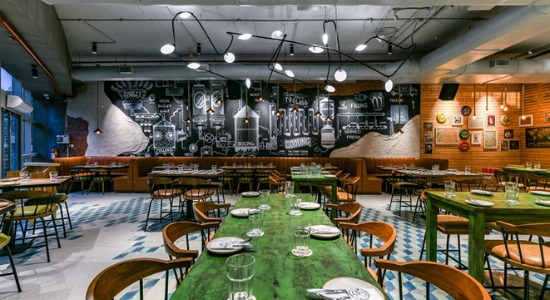
Mumbai is a growing market for microbreweries. Beer is a drink preferred by everyone be it a weekday drink with colleagues, the weekend with friends or a lazy Sunday brunch. Microbreweries have a wider audience to cater to, which means more competition joining in to capture the market but we don’t think that will make a lot of difference. We are confident of the brews we are offering. Only the best will survive.
Also Read: This Restaurant Is The Only Microbrewery At 32nd Milestone In Gurugram
Marketing and Promotion Strategies by Drifters Tap Station to Counter the Competition
We are the first microbrewery in India to serve 24 handcrafted Eastern Europeans brews. We use all handcrafted malts and hops imported from the Czech Republic. Our brewmaster, Honza Kocka, is a Czech local and is a well-known Brewer globally who curates recipes that help us stay ahead in the competition. Even the processes used to create the beer are centuries old which have been passed down by the Czech through generations. There is lesser use of machinery and tasks, like picking barley husks manually amongst others. These are few things that go a long way in changing around the taste of the beers for the better.
The Growth Potential of Drifters Tap Station in the Indian Marketplace
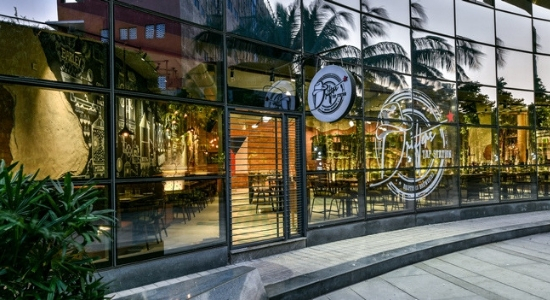
When we were in the planning phase of our business we, along with our brewmaster, travelled across the country and visited all the major cities like Bengaluru, Pune, Mumbai, Gurugram to understand the palate of Indian consumers and the kind of unparalleled quality we were required to bring in. Honza then selected malt and hops from the Czech Republic as per our research and designed recipes in a way that Indian consumers would appreciate it. We wanted to have the potential to expand within all of Maharashtra and, eventually, across India which is why we have an extensive variety of brews that we serve.
Pricing the Products
Given the location, we kept the price points such that it offers value for money. Corporates come in through the day for lunch or meetings and post-work hours to unwind while the lunch and weekend crowd comes in to enjoy the brews and the experience. The brews are available in 2-litre and 5-litre jars as well and are reasonably priced. The extravagant food menu that pairs perfectly with each brew is priced well and there’s a variety of Indian, Thai, European cuisines and more.
Expansion Plans of Drifters Tap Station
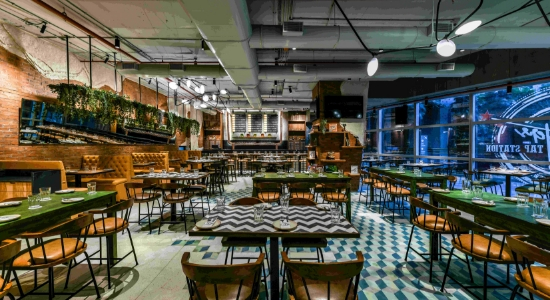
We are planning to open few more retail outlets in Mumbai and Pune and another microbrewery in Goa, so we can bottle our product and distribute it all across India. Drifters Tap Station is just a couple of months old but with the feedback for the brews we have received we have a lot planned. It is too nascent to speak about expansions currently.

All of us may be different, with different backgrounds and culture, but what unites us all is our love for pizza! The founders of Baked Pizza & Co, Vansh Pahuja and Gaurav Kumar launched the Build-Your-Own-Pizza concept at GK1 in New Delhi. The two founders of the company operate as the CEO and Managing Director, respectively.
Bringing the Fast Casual Pizza Outlet to Delhi
While completing his studies in Boston, Vansh Pahuja noticed the rise of similar concepts known as ‘Fast-Casual Pizza outlets’ in the US, which then inspired him to introduce the same in India. Initially, in September 2018 he was interested to launch a Matcha Tea brand in Delhi for which he contacted various Japanese restaurants in order to try the product. Tanoshii Trail in GK1 was the first restaurant that Vansh reached out to, where he met Gaurav Kumar, the owner of Tanoshii Trail. While discussing Matcha, the conversation soon lead to QSRs and they both agreed on how Fast-Casual Dining was missing in the Indian market. This motivated them to launch, probably, Delhi’s first fast-casual dining concept.
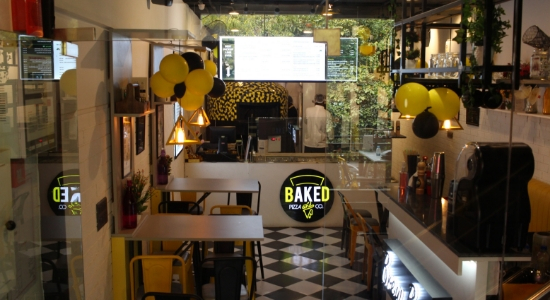
The three core categories that exist in the restaurant industry are fast food, casual dining and fine dining. Both the founders noticed there was no restaurant serving a hybrid of all three in the capital. Either the fast food outlets would provide quick service but would lack in quality, casual dining is informal but then the service would be really slow and fine dining offer a luxury experience along with good quality but then it comes with a price tag. Therefore, the Baked team were thrilled to bring a fast-casual dining outlet that creates a marriage of all three restaurant concepts.
Also read: Indian Pizza Market Offers A Mouth Watering Opportunity For Investors
The Menu
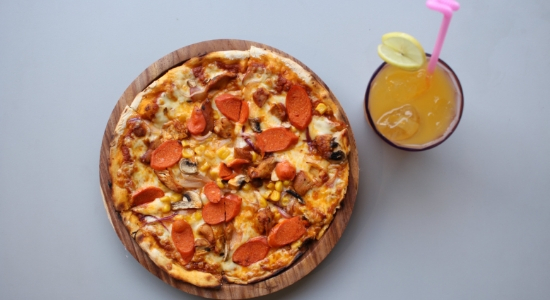
They aim to achieve the quality of fine dining by using the top quality ingredients in the market along with maintaining the affordability of a QSR outlet. Additionally, they are putting their customers first by providing the freedom of choice and visibility and letting them decide how they want their pizzas, from the size to the choice of sauces, freshly prepared every day to over 30+ toppings that they can choose from.
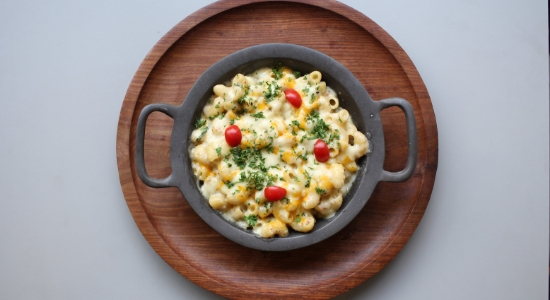
What makes it even more interesting is that these pizzas are then live-fired in Italian style traditional stone brick ovens in less than 300 seconds. Along with the choice of building your own pizzas, the menu offers a variety of delectable dishes such as house-made salads, stone-baked pasta like Mac & Cheese and Baked Lasagne. For sides, Baked Pizza & Co have some delicious selections like the Baked mozzarella sticks with Jalapenos and corn, Skinny baked chicken wings and signature fake-fried fries which is a 100% air fried with has fewer calories and no oil.
Also Read: This One-Of-Its-Kind Restaurant Is Celebrating Turmeric In 'All Its Aspects'
In fact, everything on the menu is 100% baked and not fried.
Price Range
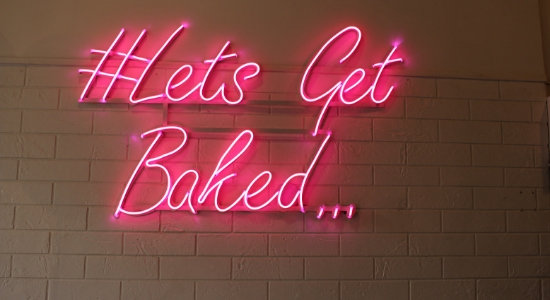
Depending on the size, the price to build-your-own pizza ranges from Rs 199 to Rs 299. Not only are their pizzas affordable but also the salads, stone-baked pasta and the sides which makes everything on the menu below Rs.500, making it a very budget friendly pizzeria.
Baked Pizza and Co are also introducing Delhi’s first dedicated Matcha Bar which would include a variety of coolers and shakes made with Matcha Tea Powder.
Expansion Plans
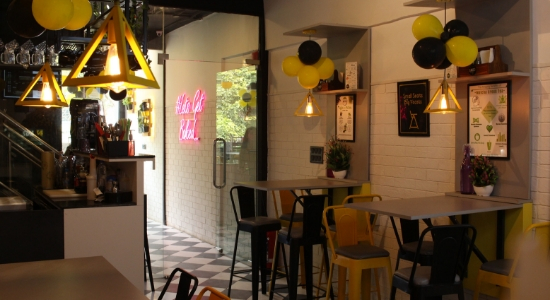
Baked Pizza & Co aims to expand quite rapidly with plans to open five more outlets by the end of 2019 in and around Delhi-NCR.

India has the highest percentage of vegetarians in the world but somehow vegetarian food beyond Indian cuisine is considered unappealing for most Indians. It is the opposite in many parts of the developed world. Vegan and vegetarian food has been trending for a long time. Hence, Nitin Dixit wanted to be the agent of this change in the dine-out culture by promoting the associated lifestyle which is considered more sustainable. Therefore, he encouraged building a strong community around the cafe which includes some support for co-working as well. Excerpts from the interview:
You aim at popularizing plant protein. Why there is a sudden trend among customers getting attracted to such concepts?
As mentioned earlier, this trend has been prevailing for a long time in much of the western developed world. In India, there does seem to be a surging interest as of late. Perhaps it has to do with our tendency to be influenced by the West as well as some major celebrities, international and local, promoting vegan food in a major push. There is also a major push from the scientific community for people to adopt a plant-based diet in order to help mitigate climate change.
It is often believed that healthy food is boring. What does your chef do to make it appealing and tasty to address to such finicky customer?
We all work very hard to get our dishes to hit benchmarks related to taste. It is a complicated process but that is part of what creates a unique value proposition for our customers. We aspire to please even ardent non-vegetarians!
How have designed the café?
The design process is headed by our co-founder Mohit Yadav and we work with many architects and designers as we have been active in the design community for over a decade. We are deeply involved in every aspect of the design.
We also see that there is a sudden rise in restaurants adopting sustainable and paper packaging and straws. Why so? How is it helping reach to more mature customers?
These are small measures in a much larger push towards sustainability which we are trying to promote also. Today maturity is not a factor of age necessarily but also exposure. Many of our younger customers are becoming aware and appreciate such initiatives. We need a lot more from the industry in this direction.
Tell us something about your menu. Which is the highest ordered menu?
People have lately fallen for our Ragi Nachos which is a contemporary and indigenous adaptation of the classic nachos. We are inspired by modern vegan/vegetarian California cuisine which itself is influenced by many regions of the world.
What is the average footfall at your café, ticket size?
We generally don't share commercial aspects of our operation but needless to say, we are quite satisfied with our progress.
You recently opened your second café in Gurgaon. What is the expansion plan?
We are opening a third location very shortly in Chattarpur area. Then we would like to strengthen our operations before pursuing further expansion plans.
How do you decide on locations?
We generally tend to look for alternate high street locations which are still mainstream and well located. We also look to access the density of our target demographics in those locations. In the future, we will also be open in some format to corporate parks.

If you want to eat a pizza there are 1000 brands serving same kind of pizza and that goes same for the Chinese foods as well. Likewise, if you want to eat Indian food, there’s Punjabi food, south Indian food and the list goes on for options when it comes to eating food. But, beverages is something which is not explored well and is only restricted to tea and coffees. Over the last 4-5 years there is increase in people selling milkshakes. But, nobody has ever thought of starting selling a fresh juice or smoothie business in India. Sensing this gap, Samrat Reddy started Drunken Monkey to feed the thirsty customers. Excerpts from the interview:
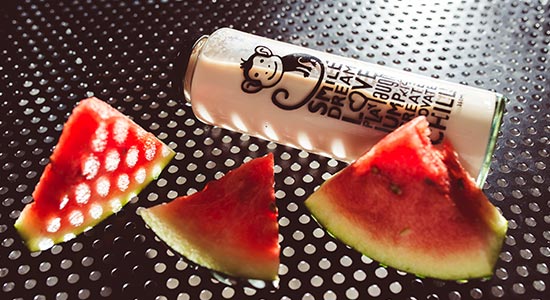
Start of an Era
“When I was a kid I never had tea or coffees instead go with friends and sit like that,” remembers Reddy who always felt a need for the juice or the smoothie player to be around. There is to be small kiosk on roadsides selling juices and he used to feel that why it is not more advanced wherein one can go, sit and enjoy juice. Since, there was no brand selling smoothie for people like him. He felt that he can bridge the huge gap that was there in the industry and hence, started Drunken Monkey where his goal is to have everyone access to a smoothie place at the walk of 5 minutes wherever they are. “It’s not about making money and instead I felt the requirement,” he adds.
MUST READ: Why Smoothie Bars Are Emerging As A Great Business Opportunity
On Failure of International Players
“One of the reasons the juice players failed because they didn’t modified or adapt their menu/product for the Indian market. So, if you are going to set up a smoothie place with fruits that are not available in India, it is a very difficult proportion. Firstly, you are saying that you are serving fresh secondly the fruits are not locally available,” shares the proud owner of India’s first smoothie chain. So, international players came with the same menu, tried to use fruits available in colder conditions and based on that they never put in their money to do R&D for what kind of fruits suits and grow in which region. “We started completely from scratch on what menu would work here. And, also even if we go abroad we need to adapt our menu as per that market,” he explains further.
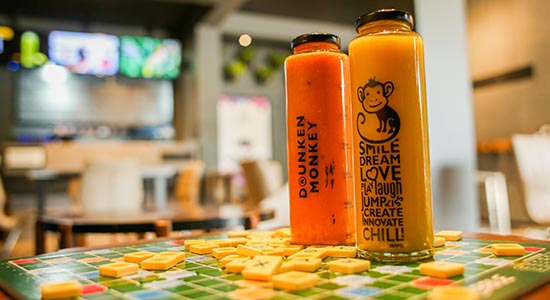
It’s Good to Have Competition
Competitions come from smoothie brands and other beverages too. “Nationally, we don’t have a player competing with us but there are few locally,” says Reddy who sees competition from small players doing 3-4 outlets in cities like Chennai and Bengaluru to name a few. “We feel that we have the biggest product range that anyone does,” he smiles as he is not afraid of competition and in fact he wants to make smoothie a lifestyle. “I would be happy to join hand with our players making it more popular,” he shares adding that coffee and smoothie can co-exist. A person who takes coffee can have smoothies.
ALSO READ: Startup Drunken Monkey Offers Customers A Wide Range Of Smoothies
Growing Aggressively
By the time Reddy opened four outlets he was very sure that if he hires a manager, he would not take the brand seriously as a partner would do. So, instead he started looking for investor in his business seeing that it is good to have one owner for each outlet who can run the business like his own outlet. Samrat entered franchising from his third outlet and today he is running close to 70 outlets across India. “We went this route because there was proven records from some of the top brands globally. In terms of how we can manage F&B operations franchising was the best option available,” he adds as he now targets to open 200 outlets by March 2020. “We want to be all around world doing 10000 outlets by having a national presence,” he adds further as he is also planning to venture the retail market by next year.

Making Big Numbers
“Our top performing outlets is our outlet at Bangalore Airport that does anywhere between 20 to 25 lakhs per month," he smiles. Apart from his dedication for smoothie business, Samrat also love sports and play it when he is not working. “I play basketball and football,” adds the athlete restaurateur.

It has been over 12 years since Manpreet Singh started his first restaurant in Agra and since then there has been no looking back. Catering tourist from all over the world visiting Agra and giving them with forever lasting impressions gave them the motivation for new outlets and new ventures in hospitality. Excerpts from interview:
What was the inspiration? How much money you have put in to come up with this restaurant?
Talking about inspiration, it has been in the blood of our parent company (Meharwing services pvt ltd). Mainly we drive our inspiration and motivation by the spirit of moving forward in life and with the dream of catering not only India but the whole world and give them the taste of Indian food with our corporate chef’s true vision and taste. Plus customer feedback has always been a true motivation and first priority for us. I have together put in Rs 11.5 crore combining the all restaurants.
What are the different types of cuisines served at your restaurant?
Pinch of Spice offers authenticity in each dish present on the menu and offers world class cuisines whether you are looking for traditional Indian food, Mughlai, Continental,Chinese,European or Italian.
How difficult it is to run a multi restaurant? Tell us something about Pinch of Spice? How is Kiskey Whiskey different?
Running multi restaurant is not a challenge provided the location is fine, food & service quality is intact and potential customers are adequate in numbers. The only challenge we face when we operate different concept people often start comparing the brands. Every restaurant has its own class and sometime it is difficult to cater all the need of our guest when they are dining at a casual dining restaurant and expecting a fine dining experience. We believe people are loyal to the brand and sometime it become difficult to convince them for giving a try to the other brands too.
Pinch of Spice is an exclusive fine dining restaurant with exclusive interiors and amazing lighting, comfortable chairs run down the space, it has the dazzling gold of the ceiling lamps shining off the gloss of the wooden tables. It offers a perfect place for dining and bar to enjoy.
Kiskey Whiskey is Agra’s first Indian Tapas bar, a Den that not only has fun filled surroundings but also the essence of the famous city and it's culture that reflects beautifully. Kiskey Whiskey feels special from the moment you open the door into the polished, regal spaces which incorporate the original Elephantic Bar.Kiskey Whiskey is known for its world class ambience, vibrant atmosphere, Sumptuous & delectable food. Our well stocked bar is ready to fulfill all the need of the guests. Especially the Cocktails, Mocktails, varieties of glassware and presentation of drinks is what makes us different from others.
Who is your target customer?
Our target customer varies from the age of 15-55 years which include college students, working professionals, female groups, corporate sector, business owners and their families.
What is the average footfall?
We get decent footfall at all our restaurant to fill up the restaurant. Most often people also wait for some time to get a table.
How about designing the restaurants. What are the elements that you take care?
When it comes to designing of the restaurants it mainly depends upon the concept of the restaurant. It solely depends upon the concept that either its fine dining, concept dining or cafe and club concept
How do you decide on a location when opening a new outlet? Why Agra?
Decision upon the location solely depends on the potential of the locality. Agra is a well-known city on the world’s map. There are millions of people travelling from across the globe every year. There was no better restaurant option in for the travelers and local people; hence we decided to open our first outlet in Agra many years back. We still feel there is immense potential left in Agra.
What is your expansion plan?
When we talk about the expansion plan of our company I would like to state that many outlets are in pipeline for B cities like Jaipur, Hyderabad, Lucknow and Assam.

A Masters in Electronics and a passionate culinary sophisticate, Anirudh Kheny has breached many gastronomic frontiers in his quest for perfection. Widely travelled, Anirudh is constantly on the quest for unique cooking styles, flavours and ingredients. Realising that a lot of people travel nowadays, he strives to ensure authenticity and quality in every dish that he recreates. Excerpts from the interview:
How it all began?
After completing engineering, I was with KPMG doing strategy and consulting, but food was always a passion for me. From a very young age my parents took us to very nice places, getting the nice experience and having a complete hospitality thing was always there. After spending 6-7 years into job I wanted to start my own business and got into it.
Tell us something about your brand. How is it different from other restaurants?
1Q1 Bar is an art décor inspire space. It’s a fairly large space of 10000-12000 sqft and we have authentic foods. What we are known for is authentic asian food especially Japanese food. We are the only restaurant in India doing the Nikkei cuisine, which is a distinctive blend of Japanese and Peruvian cooking. About 40-50 years ago, Japnese went to Peru and made the Japanese food with Peru ingredients and Peru ingredients are mainly Indian ingredients. So, that ways it was very well suited for Indian palate who do not like the bland food.
Focusing on Authenticity!
Either you do the fusion right or go to the authentic way. So, our food is very authentic and somebody who have been to Singapore, Japan and other Asian countries, the food is very similar. We haven’t customized it for the Indian palate because the customer who comes to us is discerning, well travelled and the one who travels all over the world. So, they understand the food that other places offer and we try to replicate it as much as we can.
Trends in coming years
The gimmicks, authenticity is going to come down. People are going to focus more on quality. Other than distracting people from fancy plating and molecular food it is just going to go down. People are getting back to the basics, giving good food with experiment will rule the world. So, if we talk about India there are so many cuisine and the food that the country has. We can look at more Tapas restaurant, Spanish restaurant. So, the focus would be about getting more outside food to India but maintaining the basics and the authenticity.
What new we can see happening at your restaurant?
We are constantly experimenting. We are doing lots of food festivals. Right now we are running a seasonal menu which is completely around berries. So, right from your salads, to desserts to small plate, all Asian food is taken and mixed with berries. It gives somebody a very different perspective, healthy food and so far people like it as it is different.

Second Nature was launched with the intention of delivering natural taste and nutrition directly from farm to consumers' doorstep. It is the first-ever brand of 'cold extracted' fresh fruits and veggie juices in India. Fruits are best had at the farm when they are fully ripe for picking. Second Nature endeavours to bring these natural tastes and nutrients to the consumers in the form of cold extracted juices, second only to the fresh fruits themselves in terms of nutrient retention and flavour.
"The uniqueness of Second Nature is ingrained in its ideologies and the overall process of production. The brand works directly with growers, training them in the best farming practices that are accepted globally, ensuring that the produce they grow meets the highest food safety standards in the world."
Dipti Motiani, Founder & Chief Product Officer of Second Nature
“We have empanelled renowned agronomists and experts to educate growers to ensure that fruits are grown and harvested when they are just right. We place a lot of emphasis on our products being second only to Nature, i.e. the best alternative to plucking fruits right off their branches and consuming them at the farm. Freshtrop has always focused on supplying the highest quality fresh fruits to demanding customers and the production and commercialization of cold-extracted juices and vegetable blends is a natural progression for the brand in their quest to promote the consumption of healthy produce,” says Dipti Motiani, Founder & Chief Product Officer of Second Nature.
Freshtrop Fruits Ltd. is a leading exporter of pomegranates and grapes that has forayed into cold-extracted juices segment under the Second Nature brand.
Dipti Motiani sees the rising need in the juice sector in India.
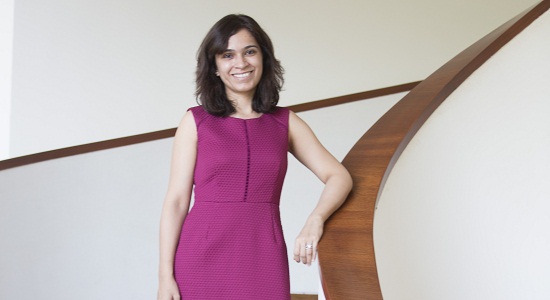
In an exclusive interview with Restaurant India, Founder and Chief Product Officer Dipti Motiani talks about Second Nature, the first-ever brand of cold-extracted juices in India, and the beverage sector in the country.
How Second Nature's concept is different from other juice players in the industry?
A critical part of our process is that we actually go back to the farm to source our fruits and vegetables. In addition, we believe we handle our raw materials much better, and we are involved across the chain right from the growing process to the harvesting, post-harvest management, and processing the fruits. Our experience in dealing directly with farmers for the last 25 years holds us in good stead in this regard. As compared to the others, we have no additives at all (no-added sugar, no preservatives, no heat).
While all the players in the juice industry are cold-pressed juices, the concept of Cold Extraction by itself is a unique method of juicing fruits and vegetables. Juice and pulp are gently extracted and a vacuum environment is created to prevent oxidation and prevention of loss of natural flavours. This is in stark contrast to cold-pressed juices, which are extracted using pressure and straining in open to atmosphere conditions, causing fibre loss and oxidation.
Must Read: How To Start A Juice Business
By far, what all juices are people's favourite?
We have multiple variants that are very fast moving – since a large part of our range is seasonal fruits, they move very strongly in their respective seasons. However, we have seen our Black Grape, Pomegranate and Orange blend, as well as our Pineapple-Mint, blend very well everywhere. Our vegetable blend of spinach, celery, ginger and orange has also done quite well, as has our Almond Cocoa Date dairy-free nut milk smoothie. I think a large part of it is down to the fact that taste is a critical parameter for us while designing these recipes – we go through about 20-25 options before launching any new variants.
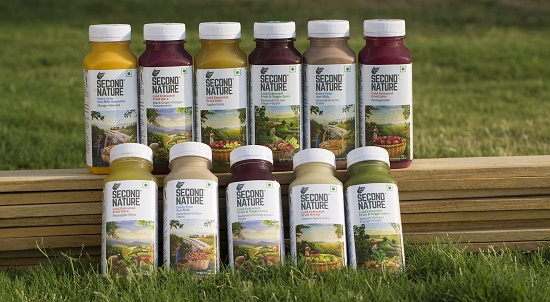
What is your favourite from the Second Nature's juices?
I personally don’t have any favourite. I find that my preferences depend on scenarios and occasion.
Where do you source your ingredients from? Are they local or imported?
At Second Nature, we believe in one simple philosophy – the juice is only as good as the fruit that goes into it. Most of our fruits and vegetables are sourced directly from farms in India. For nuts or certain fruits which are not cultivated in India, we source these from producers globally who are certified with the highest food safety standards, just like us. This means we ensure that the fruit and vegetables in our juices are sourced from the best and highest quality sources possible, whether they are local or from outside the country.
We work directly with about 1000 farmers across Maharashtra. Freshtrop has been instrumental in bringing best practices in farming to India, responsible for the first Global GAP certification drive in India, as far back as 2001.
What are your expansion plans with Second Nature?
We are currently available in Mumbai, Navi Mumbai, Nashik, Pune and Thane. Going forward, we plan to expand our products and geographies to reach a wider audience looking for healthy and delicious consumables. We plan to establish a pan-India presence while also exploring markets outside the country. Further down the line, we envision producing a range of associated food products, built around the fruit/vegetable area, beyond beverages. With our state-of-the-art facility, second-to-tree philosophy and willingness to create and maintain relationships with growers and customers, Second Nature is all set to strengthen its position as the leading manufacturer and supplier of unparalleled all-natural nutritious products for the increasingly health-conscious Indians.
How much the Indian market is aware of the cold-extracted juices?
There is rising consciousness among the consumers in India about the importance of a good lifestyle and the critical role that a healthy diet plays in it. As per market research commissioned by us, there are concerns among consumers about leading an unhealthy lifestyle, the nutritional value of the diet they are consuming and their exercise being insufficient. Also, there are worries about the products being consumed, whether they have too many artificial ingredients and what is the contribution of the ingredients towards their daily nutritional requirements.
There has been a noticeable increase in the understanding of nutritional vocabulary and customers are no longer just blindly accepting everything that is said to them.
Considering such results, it would be safe to say that the healthy and organic foods market in India, traditionally, a small market restricted to uber-urban areas, has started to see an awakening. We are seeing consumers across the spectrum demanding a better, more nourishing and completely natural product. They are willing to ask tough questions to the manufacturers and are actively looking for better alternatives.
How do you maintain the health and nutrition value of your products?
We ensure that the health and nutrition are maintained in our products by the following processes:
1) Post-harvest management is the key to retaining the taste and nutrition of fresh fruits. Second Nature’s team ensures that the fruit is harvested at the right time and is then shipped to the facility within hours of harvesting. At the facility, the fruits are immediately put into a temperature-controlled environment to ensure freshness and no nutrition loss. These are the fruits that will go into making each bottle of Second Nature.
2) Cold extraction is a method of juicing fruits and vegetables. Juice and pulp are gently extracted, and a vacuum environment is created to prevent oxidation and prevention of loss of natural flavours.
3) We use the latest technology, HPP (High-Pressure Processing) which is an environment-friendly process that respects the ingredients and ensures retention of the nutrition and original flavour of the fruits, vegetables and nuts.
4) Our top-of-the-line facility in Nasik, which is routinely audited by independent auditors to ensure superior hygiene and quality. We comply with global hygiene and food safety standards such as FSSC 22000. We are constantly working with our delivery partners to deliver fresh juices and nut milk right to the doorstep of customers.
Maintaining the cold chain is very important for retention of taste and nutrition, thus, all products are shipped by Second Nature team to maintain the requisite temperature and hygiene conditions all through the supply chain.
What are the key challenges of being in the juice sector?
Every business has its challenges. For juices, we in India lack an established cold chain infrastructure and the understanding, both at the consumer and retailer levels, of how much it impacts the quality of fresh produce. This lack of infrastructure undoes a lot of the good work put in at the farm level – today, grapes from Nasik are sent to both Mumbai and London. In Mumbai, they hit the shelves within 24-48 hours, while the process takes 4-6 weeks for London. However, the grapes in London are fresher after those six weeks as compared to the ones in Mumbai sold after a day or two. It is a critical part of the entire food and beverage puzzle that needs to be resolved in our country.

A salad a week does not make a diet. Healthy eating is effective only if it is made a habit. And the key to making this easy is to make healthy food as exciting and interesting as food that we like to binge on. The concept of Purplebasil of healthful fast food does just that. “Essentially, our proprietary recipes use alternative ingredients to replicate the tastes and texture of fast food dishes, thus make them superbly healthy while retaining the deliciousness quotient,” shared Dhananjai Raja Kuttikad. Excerpts from the interview:
The Idea
A couple of years ago, my wife Rashmi and I decided to make a lifestyle change and start eating healthy. We soon found out there was a dearth of credible service providers who were genuinely focusing on all-round nutrition. More importantly, ‘healthy food’ in the market was terribly boring and bland, making it difficult for anyone to take up healthy eating on a regular basis. We wanted to change that. We wanted to make healthy eating interesting. That’s how we hit upon our concept of really healthy food that tastes like fast food! Our vision essentially is to help make healthy eating, an easy, convenient habit for our customers. In the long run, we plan to be like a McD for healthy food.
Venturing into New Markets
All market predictions by analysts about our segment are extremely encouraging and predict a high CAGR. This is mostly because our target group – age groups of 25 – 45 – are a generation that are increasingly turning health conscious and making informed choices around the food they eat. While Mumbai and Hyderabad are extremely high potential markets that we are expanding too soon, we are also betting big on mid tier cities in India.
Eyeing Franchise Expansion
Right from day one, given our moon shot of becoming the McD for healthy food, we have prepped to make our business more process dependent and less chef dependent. This means extensive documentation and standardization around recipes, trainings, etc. Our proprietary Kitchen Symphony process eases our ops and makes it a scalable and repeatable model.
Binging on Healthy Options
We have over 60 documented recipes in our recipe book covering cuisines from all over the world – from European to Mexican to Middle Eastern to American to Indian. Our online model presents a limited number of these to our target group in a daily changing menu format. For our diner model franchise (directed towards tier 2 cities), we have a fixed menu format – 80% of the menu usually comes from our existing recipes. The remaining 20% we will develop new recipes based on cuisines that are local to the specific city/area and present them in a style a-la purplebasil.
Getting the Fair Deal
Average order value and ticket size for our online model is between 300 and 400. In our diner model franchise, cost for two would be anywhere between 700 and 1000 depending on the city.
Expansion Plans
In the next three years, we hope to be in at least two countries. In the next ten years, we hope to be the world’s most loved fast food brand for the healthy foodie.

Susmitha Subbaraju has always loved eating food the right way. A vegan by choice she started realizing the true value of eating food the right way in 2003. “I am a vegan since 2003 and developed a passion for vegan cooking and baking,” shared Susmitha who turned into a restaurateur from a blogger out of the passion to promote veganism in India. Excerpts from the interview:
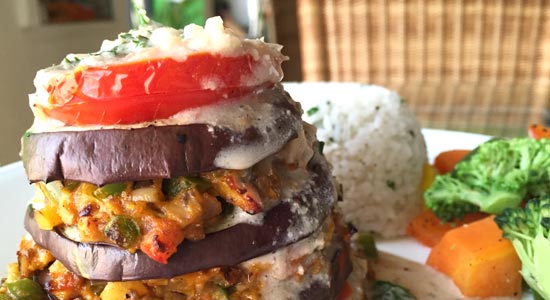
The Idea
There was so much variety available in the market and hence wanted to bring this kind of food out to the world. Started as a blogger wherein I would post every recipes that I have experimented with and then I began consulting with restaurants and catering company as a consultant wherein I would do pop menu or events etc. Carrots was started by Krishna Shastry in February 2013 where I used to go as a regular customer/ guest and share my recipes and ideas. Krishna asked me to join in as he has business knowledge and I had vegan food knowledge. So, it came in as a natural partnership and I converted from a guest to a partner. The idea is to bring delicious food to the world and show variety to people.
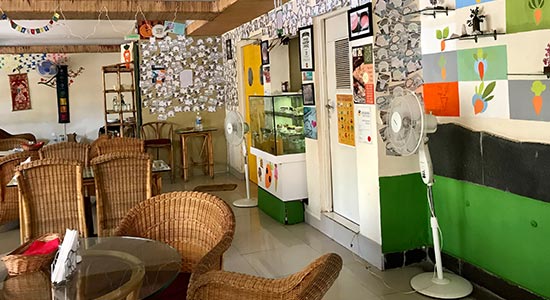
Working on Vegan Menu
It depends what you are making. So, in many cases it is quite easy and it’s just the matter of changing the mindset, trying alternatives. It is working on any other menu where there are both complicated as well as easy menus. We have a very waste menu because the idea is to have something for everyone. It depends on person to person. Our sloppy joe burger, aubergine mushroom platter and obsessive chocolate disorder are one of the most ordered items on the menu.
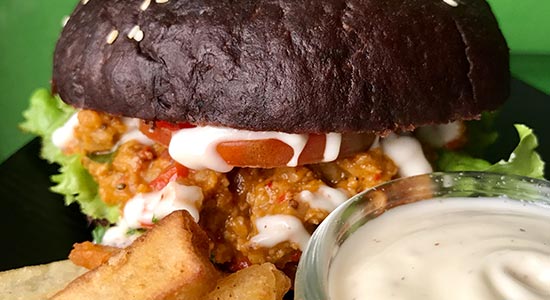
Targeting the right customers
We have 30 per cent of the vegan customers and rest is all non-vegans with a mix of vegetarians and non-vegetarians customers. We don’t have one fix target audience instead our goal is to serve vegan food to everyone. The regular customers are obviously people who are well travelled to the world and are open to experimenting new cuisines and food and not just traditional food.
Something for All
We have a mix of snacks, starters and a fusion menu. It depends on the kind of food a person is having but a meal for two would be anywhere between Rs 800-1200 with an average ticket size of Rs 600.
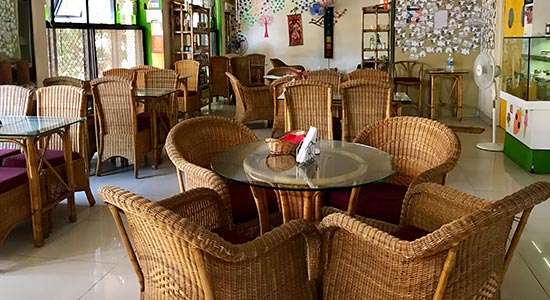
Getting the Right Numbers
The footfall varies during weekdays and weekends. On weekdays we get 60-70 customers whereas it goes upto 80-100 on weekends combining both lunch and dinner. We try to make our food as healthy as possible without compromising on quality and taste.
Why Vegananism
It is all about awareness. A lot of us eat food because that’s what we have been grown eating and that’s how we develop taste. There are three main reason for this- the first being ethical wherein people don’t want to hurt animal and find alternate for it, second is health awareness because animal food is not meant for us and it won’t be natural for us, third is obviously the environmental because there are lots of greens being killed.
Creating Awareness
We don’t hesitate or hide the factor about being vegan. Veganism is growing all over the world. Our technique is being open about it. We have information on our restaurant wall; we have leaflets that we share among people. We are also into teaching and that’s where our growth is. We are doing consultations and teaching people to serve and make vegan foods. It’s not just that vegan restaurant should serve vegan food but it should be made available at all the restaurants by serving a portion of the vegan food. That’s what has happen in the west and that’s what we want to do in India.
Trends in 2019
Healthier food options are going to grow big and more awareness about eating right is welcoming us in New Year. The awareness about vegan, healthy and conscious eating will rule the world.

People have always loved drinking their favourite colas and mojitos, but over the last few years there is lots of changes in the beverages market with more natural and healthy alternative options available in the market. It was in early 2017, Siddharth Jain an M&A banker with BNP Paribas in Singapore for over six years launched his beverage venture. An avid tea lover from the very young, the inspiration came during one of Siddharth’s visit to Paris where he came across many tea rooms and cafes serving Indian brews tea. Excerpts from the interview:
How it all began?
The idea about starting tea room started last year when I went to Paris and saw that there was lots of tea room in the city. I saw that lots of these teas being served were Indian and I have been a big tea enthusiast from a very young age. That sort of ignited me that I would bring these tea to India so that people in India could consume good tea that India makes. I started looking at various models including tea rooms, chai cafes. But when I looked at these business models I saw that rentals are so high in India. Then I looked at tea machines that brew real good teas for school, colleges, MNCs etc. It was finally the bottled tea because the gap in the beverages segment was the most obvious one.
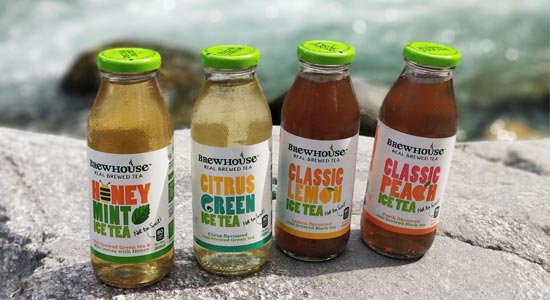
What is the sudden change?
People are heading to move away from carbonated drinks to healthy beverages but there are not too many healthier beverages option available in the Indian market and when you look to start an alternative of carbonated drink, iced tea is the most obvious alternative as it is the most natural sort of beverages option. And, that’s what has happened in the other global markets like the US and the Europe where the share for carbonated drinks are going down and the share of iced tea has really gone up so much so that iced tea is the third largest category in the world. Rather than thinking it as a threat or weakness, I saw it as an opportunity that if you do it well, the category right.
You could have started a tea café as well. Why a bottled tea?
I am sure tea cafes are doing good businesses and money. They are serving the right need as there was the need in the market. But I felt that it would be difficult for me to scale up. It’s also about what kind of business model excites you and I think it wasn’t something I was comfortable and I would like to do. I felt more comfortable with consumer packaged products and that’s what is exciting us on what we are doing tea.
What’s your view on the growing trend of iced tea business in India?
Iced tea has so far not done very well in India and hypothesis was that they are not doing well because they haven’t be done well in the market. Normally iced tea has been done in a very traditional way from tea sorbets or tea extracts wherein you add water, sugar and preservatives. The problem with that approach is that in the Indian context iced tea is still a niche segment. The consumer is essentially the health conscious, more evolved, premium consumer. When they look at tea they look at more healthier and natural ingredients. There were two things that people really want is natural, less calories. So, we have identified our consumer and what are they looking for. Our tea is first real brewed bottled tea in the country which means we don’t use extract. We use whole leaf tea, brew them on site and then we cool it down, add sugars and flavours and sell it.
What’s the shelf life of your product?
The shelf life is nine months. We use glass bottles for a long shelf life without using preservatives. It is taken to a very high temperature to sterilize the bottle and then we fill in the bottle at the high temperature, we immediately cap it and cool it down. So, by cooling it down rapidly it creates a vacuum.
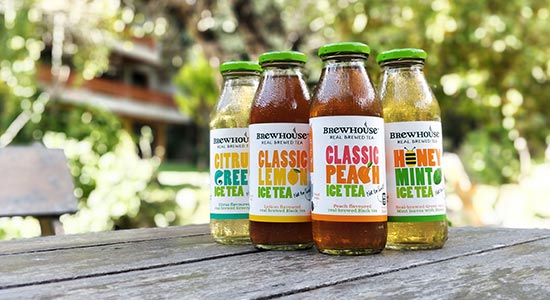
Tell us about your presence in the market?
We started with HORECA with Burger Singh and it was an immediate success and expanded to other Burger Singh outlet. We quickly became one of the largest selling beverages brand at Burger Singh. We have also partnered with Barista, Belgian Waffles, Bercos, Khan Chacha, Pita Pit, Kebab Express, Binge Cafe, Desertfox to name a few. For first seven months we were only in restaurants and we didn’t do any retail. It was in Jan 2018 we started building retail presence. Now we are doing 2000 bunch of sales across the country and we are in lot of corporate offices, co-working places, 5 star hotels, modern trade chains like Spencer’s FoodHall, Big Bazar and Nature’s Basket.
How have you done the pricing?
We have priced 350 ml bottle at Rs 60.
Tell us about your expansion plans?
We have plans to expand across the country. We are looking at new products and flavours. We are very bullish about this category, new packaging format to bring the price down.

How Rolls Mania Became an Empire
Back in 2009, a young 18-year-old Puneet Kansal, came from Mathura to Pune with an empty pocket and the dream to set up a successful business. Possessing a meagre experience of odd sales jobs, he had zero knowledge of the F&B industry. His idea to bring back roti rolls he grew up eating and offering healthy rolls with a pinch of nostalgia. With an old school friend lending him Rs. 20,000, Puneet went on to set-up his table-sized kiosk outside a restaurant at Magarpatta city with just one chef to his help. Right from sourcing accounts to delivery, he did it all to make this venture a success. But success did not come easily to Puneet. With increasing numbers of customers each day, he was soon asked to vacate the place and that is how the first outlet of Rolls Mania was launched in the same complex.
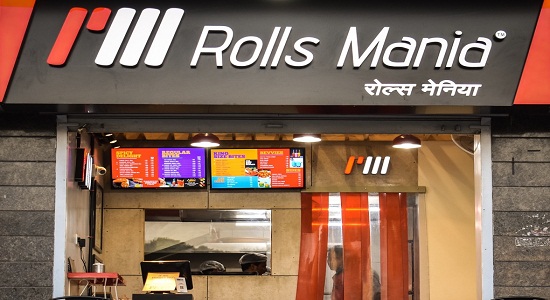
During this period, Puneet found friends and partners in his regular patrons Gagan Sial and Sukhpreet Sial, who had already set their foot into the restaurant industry with 10 years of experience. Together, the trio formed Rolls Mania as an official company, opening the second outlet in 2010 and since then, have grown into a brand with 102+ outlets till date.
"We proudly say We just hit the century, the biggest milestone to date. We are successfully growing by 103 % per year,” says Puneet.
Striking the Right Balance
Striking the right balance between the goodness and wellness of homemade food packed in the form of succulent Kathi Rolls, Rolls mania got clicking the right taste buds of Puneites, igniting the need for more across the city. With a healthy and pocket-friendly array of veg and non-veg on-the-go rolls, it was the time Rolls Mania engaged with an expanded audience through expansion across diversified taste scenarios. After establishing six successful outlets, the team found the franchise model the most viable method to take the brand to newer and untapped markets across domestic boundaries, maintaining consistency and uniformity in terms of quality across all outlets.
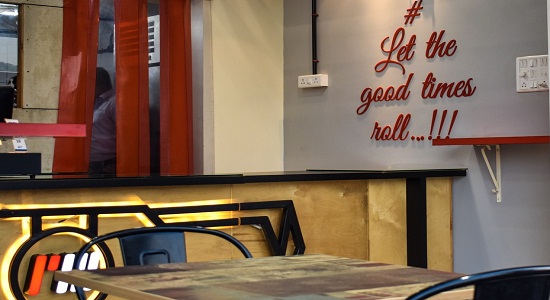
Rolls Mania was one of the very few brands in the QSR domain to provide an entire support system to its franchise owners, enabling them with the right amount of skill and training. Ranging from trained kitchen staff to region-based marketing strategies and pricing, the brand not only expanded with this strategy but also founded a base of loyal customers and owners across the nation and fulfilled the dreams of many who aspire to own a restaurant.
Nine years into the industry, Rolls Mania is an entirely self-funded company, spread across 30+ metro, two and three-tier cities, with 102+ outlets and 90 per cent of the owners being women while selling over 12,000 rolls every single day.
Brand Ethics and The Three Qs
With humble beginnings, Puneet Kansal, Gagan Sial and Sukhpreet Sial founded today’s leading QSR brand - Rolls Mania. Initially, on occasions when delivery boys and employees didn’t turn up, the trio have delivered the food personally to sustain their base of happy customers. With such passion and zeal to make it big and no background of F&B industry or fancy business college degrees, the brand strongly believes that an opportunity is all one needs in life.
In a day and age where people opt for MBA graduates to do the job, along with top professionals, Rolls Mania also has employees that have progressed their way from desk boys to area managers today.
To stay at top of the game in maintaining standard operating procedures, the brand lives by the 3 Qs- Quality, Quantity & Quick service.
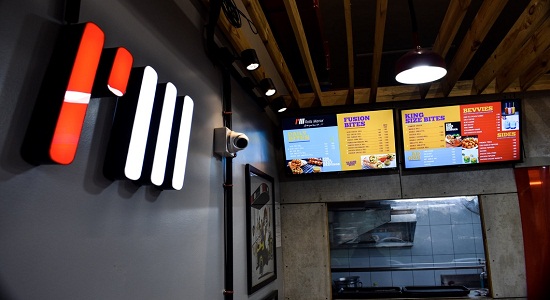
A motto of not only making profits for themselves but taking each and every member of the Rolls Mania family up the ladder of success and of growing together, they have created an army of employees and owners who have dedicated their lives to take the brand to newer heights. In a highly competitive QSR industry, here is a company that is setting benchmarks for other homegrown brands.
Expansion Plan
A belief that rolls belong to no geographical boundary, the Kathi Roll brand visions establishing itself all over the world, kickstarting their dream with their first outlet in the United Arab Emirates, before touching other counties amidst the GCC.
Quick Facts
- Rolls Mania Franchise – The brand has 107 Outlets all over India with over 35 cities in which 11 outlets are company owned and 96 Outlets are Franchise Owned within a span of 8 years. 15 more stores are in pipeline, expected to start within this year.
- The investment required to start a Rolls Mania Franchise Outlet is up to 18-23 lakhs, depending upon the size of the store.
- Minimum Area required is about 200 sqft to 300 sqft (carpet). A store should be on the ground floor. It should be near to schools, colleges, residential areas, commercials & IT hubs.
- Expected ROI – 1 year 5 months
- Expected break-even – 1-4 months’ time period.
- Preferred cities and location – Pan India. Also, at all the potential airports with good footfall, at railway stations and all high-end malls in India.

Delhi has something scintillating to offer with the grand opening of newest hotspot Roar Nightclub. The venture brings together nightlife moguls Ajay Bindal and Mohit Gulati along with Gaurav Verma, the masterminds behind some of Delhi's most sought-after nightlife establishments. Adorned in gold, the venue surpasses the traditional concepts of nightlife, providing a lavish outlet for V.I.P. guests, superstar DJs and celebrities to play. In addition to the nightclub's plush decor, space is also equipped with the finest sound and lighting systems. In an exclusive interview with Restaurant India, Ajay Bindal, co-owner of the Nightclub said Roar promises to be a versatile venue for the party goers with acts supporting music from around the world.
How did the Roar Club happen for you?
Before stepping into the F&B, I was working in imports and exports with offices in Dubai, US, Belgium, Spain and more. Meanwhile, I felt a gap in the Bollywood industry. No one was playing Bollywood music. I talked with a key lender, and I started with the brand which was the first club totally dedicated to Bollywood music. I, then, launched The Nest in Delhi in 2015. We have done a lot of concepts. After that, we started with the RSVP. Though we did pretty well at RSVP, there was one challenge - a lot of people from south Delhi were not coming to Central Delhi and Connaught Place. Secondly, the size of the place was very small. We could not cater and accommodate a lot of people. In a small place, you can’t be a multi-genre. To reach to the maximum people and to reach a crowd from Gurugram as well, we started Roar. The Roar Nightclub is a multi-genre; we are doing Bollywood, hip-hop, reggae, trans, sion, trap, techno music genres. This is a big place with huge capacity, so we can host popular artists too.
What challenges do you see in growing Roar Night Club?
We recently launched and yet I could say that we are doing pretty well. Being in the hospitality industry is always good. Earlier, when we were in central Delhi, there were more crowds. But after coming to Nehru Place, we realised that previously we were easily approachable to east, north and west Delhi. The east, north and west Delhi are growing very fast and the consumers’ spending power is also increasing. Location is one challenge; we cannot reach those significant areas of Delhi.

How do you connect with your customers?
Right music to the right people! It is the biggest way to connect with people. When you play it right for the right clientele, it establishes an automatic connection. As we understand the changing trends, we bring the same genre artists to perform at the Nightclub. Secondly, it is the kind of service you give attracts customers. Thirdly, you provide them with a safe and secure environment, and you will see a rise in the footfall.
What is your expansion plans growing your brand further?
It’s too early to talk about the expansion. This is a flagship project of Roar. We’ll see which direction we grow and we will plan accordingly. We are looking forward to expanding with franchises but right now the orientation is to make the brand and the project a hit.
What are the unique innovative and R&D techniques that will keep you growing?
The USP is the location. Central Delhi is not too far from Roar, which is at Nehru Place; it is also very well connected to South Delhi. If you see Epicuria, the footfall has grown massively in the last few years. Places like Flying Saucer, Lords of the Drinks and more shut down at 12 am or 12.30 am. The Roar have a 24-hour license. Since people want to party till late, we have an advantage. This place is big and divided into different sections. 50-100 people can easily party in one section. They won’t feel the place is empty. People feel more secure and safe at our nightclub.
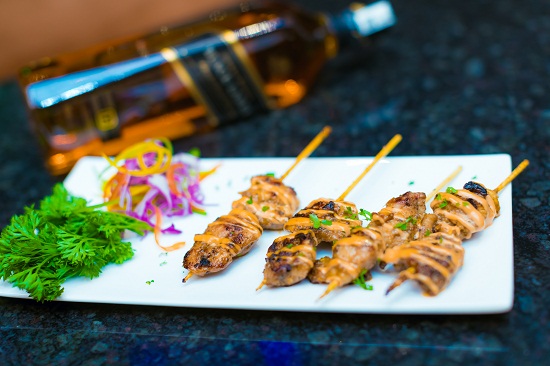
What kind of drinks people like more at your nightclub?
Everything runs equally – wine, whiskey, beer and vodkas.
What strategies do you adopt in marketing?
A lot of places are either too raw or rough or too jazzy/flashy, we have the advantage here. We kept the design of the Roar Night Club very classy and subtle. On another hand, to reach a maximum number of people we keep changing the acts. We have come up with a new idea “One Night Stand” which is very popular among our clientele. With One Night Stand, we call popular artists of different music genre once every month. The artists of various music genres have a different fan following. A lot of new people get to know about Roar through it. For partygoers, we have special national as well as international acts. While facing the DJ booth guests will discover a floor to ceiling LED display showcasing video imagery and effects that are fully integrated into the control systems. The imagery, colour and effects flow together seamlessly with the music and atmosphere of the night.

The tea market has drastically changed over the couple of years. From a country known as the tea drinking nation, India is giving a tough competition to the coffee café format by setting up an innovative trend of its home grown ‘Chai’ players.
“There is no single organised player in India's Rs 33,000-crore chai market and Chai Point targets white-collar workers across the country who are fast on technology and love the new experience of sipping tea”, says Amuleek Singh Bijral, CEO & Founder, Chaipoint.
In an interview with Restaurant India at the FICCI Annual Summit ‘MASSMERIZE’ Bijral shares what it takes for him to stay ahead in the game.
When did the ‘CHAI’ journey start for you?
After having worked in the technology sector for so many years, I was keen to build a consumer brand, started looking for opportunities. And we stood out because the Chai sector is indeed a large one and there was no brand around that category.
Today, the Chai segment has a lot of brands around it and the competition is tough. Still, how do you manage to stay ahead in the game?
We are fundamentally in the ritual business which means that this is a product which will be successful if we have top notch quality and more importantly, that quality is consistently good all the time. Our focus on quality and consistency is the key for our business. That is exactly what we are paranoid about and we hope to continue this ritual and be around for several more decades.
Considered as one of the biggest disrupters in the tea segment, how do you map to scale this business with your future plans?
Fundamentally, we are an Omni channel brand, essentially because we want to reach out to our target customers and that is a white colour segment in as many ways as possible. Our expansion plans are about increasing our growth across these channels. We plan to build more stores, with new concepts of delivery, figuring out more about innovative concepts for this segment.
All these sectors considering the size of the market are very nascent. We are at a very early stage, so by focusing on all of these factors we have a huge potential to grow.
Where your initial challenges in this growing segment?
We are relatively a small company. This market is very large. We have been focused on the basics even though we operate in multiple channels. Our fundamental value of quality and consistency and remaining focused on the customer is primal for us.
Chai Point wasn’t a novel concept in that sense but our aim was to take chai to a massive level. The challenge we faced initially was more to do with the mindset of the junior employees working with us. They had apprehensions about being labeled as chai walahs. We spent substantial resources in employee engagement programmes to instill confidence in them.
What will you attribute to the success of your brand?
Most people among us consume tea at least 2-3 time a day, it’s a habit. We love chai so much that we at times even compromise on quality. At Chai Point our aim is to refine the offering – the experience of having chai. Good quality and warm chai, just when you want it. Chai-on-call brought with it a path-breaking, core innovation – the heat-retaining disposable flask. The flask retains heat for 45-60 minutes. A large chunk of our consumers may have never entered out retail outlet but their transactions with us are high.
Each time we set up a new outlet, a large percent of our investment goes in to technology. A robust delivery system backed by technology is the key to our offering. As a result, we didn’t suffer due to demonetization. Our online and wallet transactions increased during those days. Initially, we’d have busy weekdays but now we are witnessing chai being ordered by customers at home on weekends as well.
Tell us about your expansion plans.
We plan to open 30-40 stores e every year. We don’t have any franchisees. We want to build only company operated stores.
Copyright © 2009 - 2025 Restaurant India.





